#will add more tags when i can
Explore tagged Tumblr posts
Text
It's getting lonely, it's getting hard to breathe

The arcade's empty, I think it's Christmas Eve
#wanted to do more with this but whatevaarrrr i wanted it out before i went to sleep. and it's 5 am#devastating lack of cabinet man posting on my dash 2day. it's just been almost christmas means it wasn't christmas#art#digital art#lemon demon#cabinet man#lyrics#music#eyestrain#bright colours#might be missing some but if i can think of more tags i'll add them when i'm up
1K notes
·
View notes
Text
Made this in like a minute out of frustration over a couple memories. Is this anything
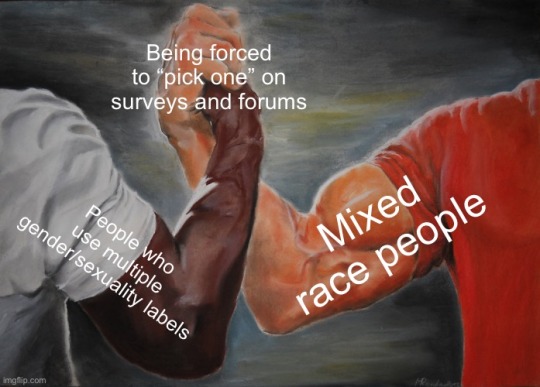
#Mixed race#aromantic#asexual#split attraction#nonbinary#multigender#trying to cover all groups who’ll relate but can’t list all of them from the top of my head#I’m both btw#It’s even worse when I can only select “mixed/multiracial” on a survey but can’t specify WHICH RACES I AM#JUST LET ME SELECT BOTH SOUTH ASIAN AND WHITE DAMMIT#Edit: hold on let me add a few more to the tags#Bigender#queer#genderfluid#multiracial#biracial
3K notes
·
View notes
Text
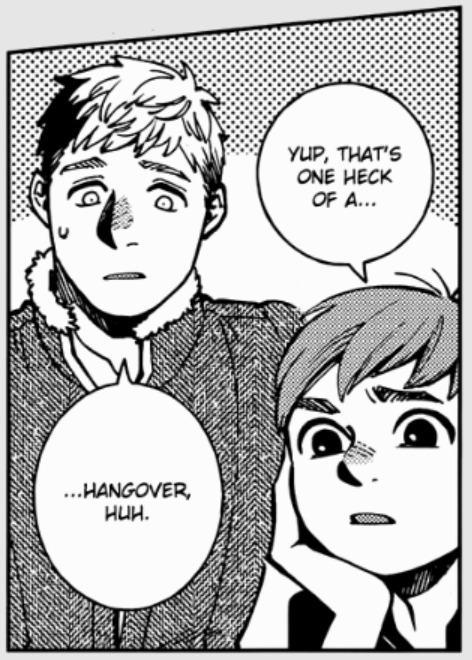
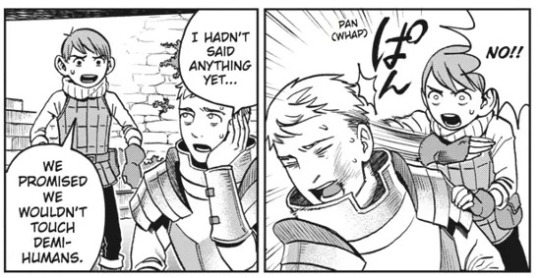
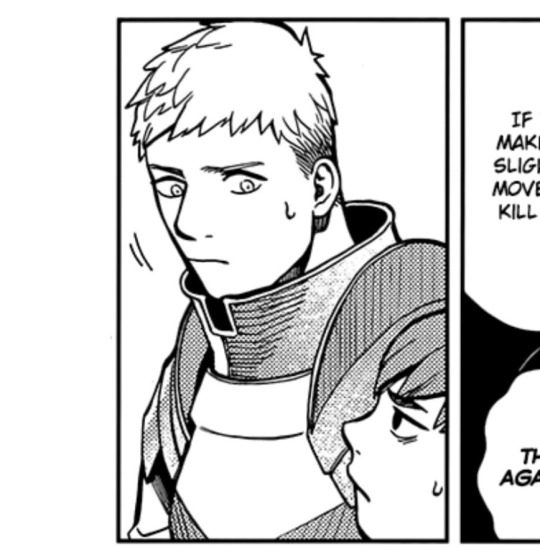
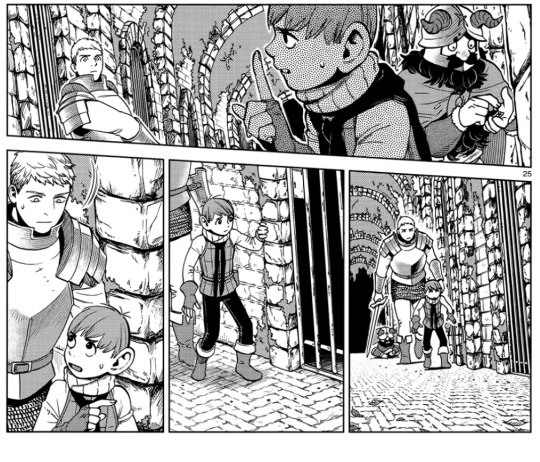
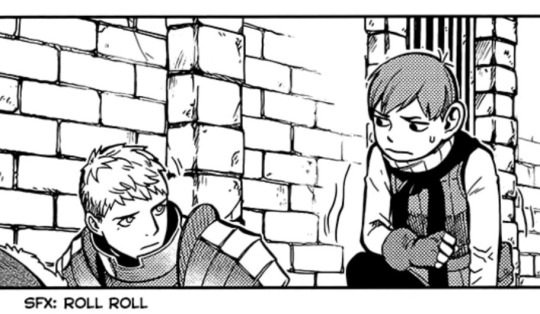
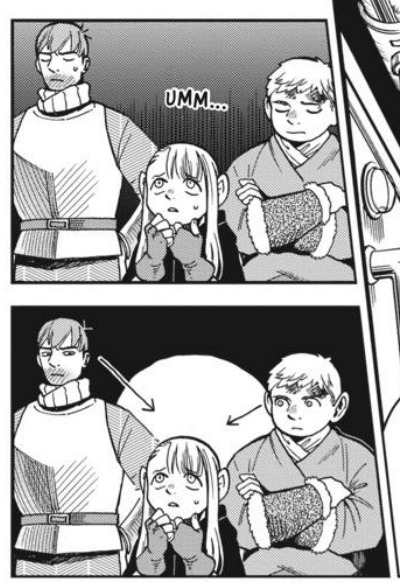
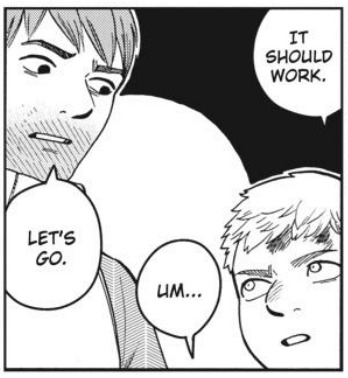
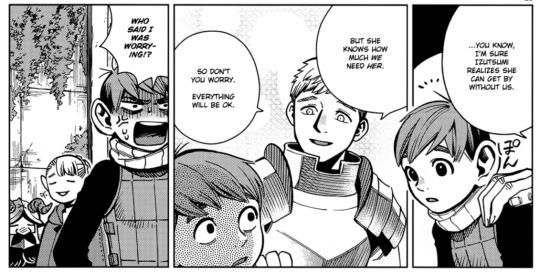
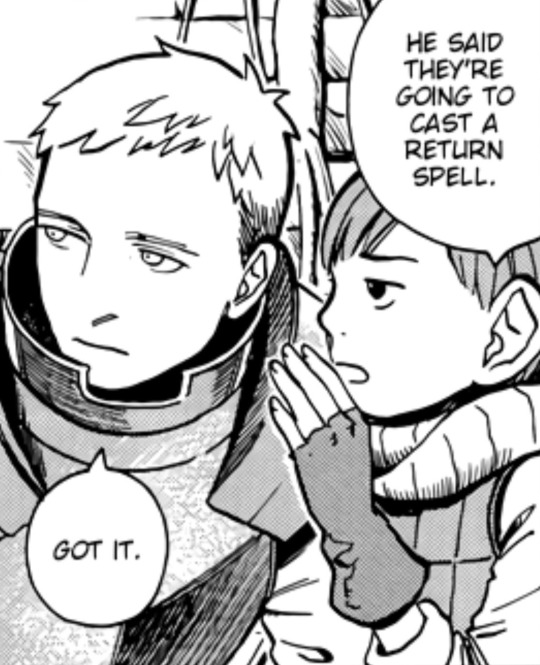
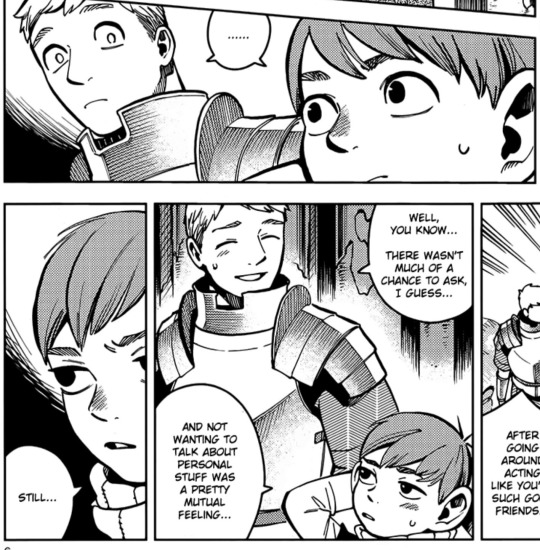
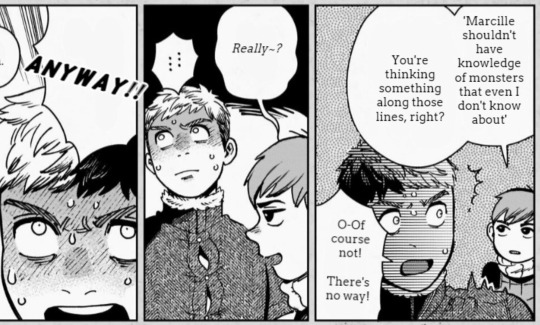
chilaios telepathy compilation. btw.
also these ones arent telepathy i just think its fun that they defend eachother + are on the same page about alchohol :
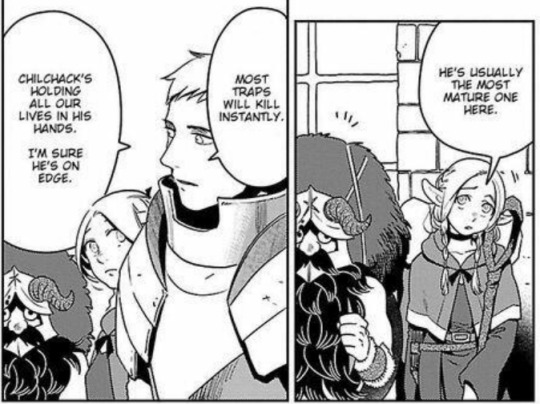
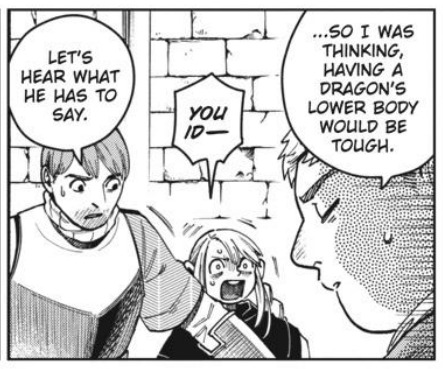
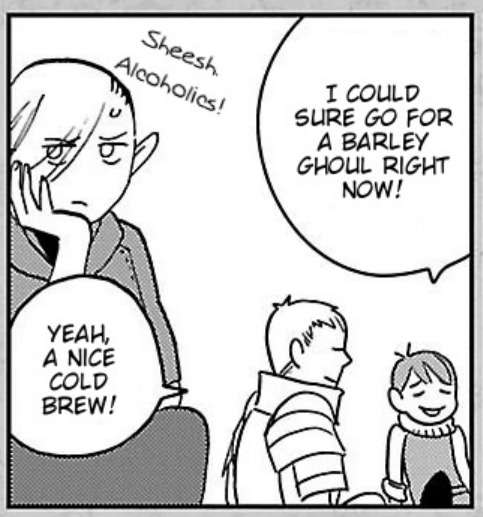

#chilaios#theres probably/definitely more instances of them doing telepathy but ive already stalled so much time for doing my work so#yall can add the ones i missed#dungeon meshi spoilers#????? i guess??????#anyways this is why im insane about that “laios... you get it right?!” line because like. he usually does get it. they get eachother.#theyve reached a point where they can have a whole PLAN sorted out by looking at eachother.#of course chil would desperately hope that LAIOS would be the guy to understand#laios the one chil understands. laios the one who tries so hard to understand chil. laios the one who brings chilchuck out of his spiraling#when no one else will.#of course HE would get it. of course. LAIOS will get it. LAIOS will see through that weird fake. he doesnt see him that way.#..........right?#OH i want to convert some people with this actually so im gonna main tag#dungeon meshi#dunmeshi#: ) hello dungeon meshi fandom. in front of you is a table with the papers required to convert into a chilaios shipper. you have 30 seconds#to sign them and if you dont i will personally apologize for wasting your time
1K notes
·
View notes
Text
Guys I’m being dead ass when I say this. It’s been five years- HALF A DECADE since I last watched Voltron and yet Keith Kogane stays on my mind. He won’t leave 😭

#voltron#keith kogane#vld keith#confession: I started watching the show for Keith#keith kogane x reader#tragic romance#born to marry him#cursed to read fanfics of him#AND THERE’S BARELY ANY WTF 😭#I cope by imagining him in all the fanfics I read#it was always you#but never me#you were an amazing experience#you were everything#voltron legendary defender#he was a punk#she did ballet#what more can i say#he wont leave me alone#but I don’t want him to#I’m gonna add the yandere tag just cuz#tw.yandere#yandere x reader#reader insert#ok another confession#when I read kylo ren fanfics I imagine Kylo as Keith with curly hair#ok i’m done#might as well add the kylo ren tag#kylo ren#kylo ren x reader
168 notes
·
View notes
Text

brush test slash rendering practice with ayem
#morrowind#almalexia#the elder scrolls#tes#tes fanart#art#id in alt#ok that's all the tags this needs ANYWAY#i started this 1. for experimenting with coloring from dark to light#2. because i wanted to draw someone kind of back turned to the camera#3. rendering practice for hair particularly#4. to go from sketch to rendering rather than doing lines to see if that doesn't smooth out my workflow a bit#5. because i've never actually used this brush past flat coloring#and out of those 1. i don't think i had enough of an idea of the palette or process to jump into dark to light painting so i did scrap that#and go with my usual “flat color with one of the mid shadow tones add shadows add light”#i do think that painting from shadows out is a thing people do digitally i just think this wasn't the drawing to test it on for me#i think i'd need to look at some other peoples processes and start with a more fleshed out idea of where to go#2 and 3 i think worked out. i'm gradually figuring hair out which i think is sick#4 i also think worked out for me which is also sick because i do get caught on lines a lot. they're fun sometimes but i think some drawings#benefit better from not having them and that it might be a bit faster#and of course everything i do is so that i can draw slightly faster and better for next artfight#as for 5. i have mixed feelings on this brush but that might be because i hate change. and also because i started this drawing on the 15th#of november and finished it yesterday. so im kind of just sick of working on and looking at it#it was a valuable learning experience and i think it came out well! i am also going to drop to my knees and rejoice when i can finally#close this file out and free medibang paint from under it so i can work on Literally Anything Else#thank you almalexia for being my test subject i should've used a reference for your armor when i did the sketch but i didn't#maybe the crown looks weird because of it maybe it doesn't. not my problem anymore i can draw other elves again#my art#iiii think i forgot a my art tag last time
112 notes
·
View notes
Text
Omg I just had a thought! (insert someone joking about this being my first time thinking)
So, you know how in the movies there's someone dying and another character has hallucinations about that dead character and then there is a scene with dead character going like "I'm dead, just let me go"???
Danny. Danny can do that. Or Dani, she's chaotic enough. Just say to someone dramatically all this "I'm dead, you're hallucinating, let me go" speech and go intangible and invisible.
And it can be used for angst where Danny dies in front of someone and has to pretend he's dead, and then they meet each other accidentally and Danny gaslights his way out of it
Or for complete crack with Danny just being a little shit and doing that on every opportunity, several times in one day
Like, character N and Danny end up alone in one room, Danny smirks, N hisses "don't you dare!", and Danny does dramatic speech of "I am deaaad, you're lying to yourself, let me go". Bonus points if just a minute ago Danny was giving a speech to like 10 people, and all of them clearly could see him. More bonus points if Danny accidentally does the hallucination speech in front of someone else, and they just stand there really confused.
#it can be a normal activity between Danny and Dani#they just compete who can do this more times a day#everyone: leaves the room#Danny and Dani turning to each other: Let me gooo!#it can be what they do instead of saying goodbye like normal people#I'm gonna add dpxdc tag#dpxdc#because imagine Danny doing this to Tim#and Tim on his fourth day without sleep actually doubting himself#and trying to remember when Danny died#Tim: How did you die???#Danny: I tried your coffee-redbull blend that's how#danny phantom#dcxdp#dp x dc#dc x dp#literally any crossover you want#or no crossover at all
354 notes
·
View notes
Text
hi and welcome to tdp callbacks that would actually send me
"if i am the king then you have to let me go"
"i'm corvus, i was specifically requested"
"i don't believe in locks"
"haha nice one callum, he deserves it"
"lady justice came to me in a dream"
"don't get yourself killed."
"strength isn't always about weapons"
"shhh, nobody likes a noisy mage"
"tell me she wasn't your world"
"you're just like your grandmother"
"she’s not my friend, she is my prisoner"
"rickety snickers"
"wasn’t the horse~"
"i am a storm dragon. i certainly hope it's working."
"in the name of love, you may perform acts so unforgivable… you will never forgive yourself."
"we could travel the countryside and try the seven cakes of xadia!"
"i am prepared to do anything to protect the king. anything. i hope you will understand"
"i guess it wouldn't be the first time i accidentally on purpose ruined a super rare magical artifact."
"don't do this. i will kill you" "probably"
"anyone know any adventuring songs?"
"we can find more practical uses for this one"
"well, i think about it like this, why see myself as chained down, when i can be chained up?" "i admire your tenacity"
"just the three of us"
"watch, he'll come back reciting an epic poem about his adventuring. he's probably late because he's stuck thinking of a rhyme for 'legendary heroics.'"
"the world just isn't ready for what we have. "
"i have been doing research!" "yes, i can see that"
"i do not understand girls"
"i thought you disapproved" "i disagree. but i stand by you anyway"
"you know what? in a few years, when you’re older, buddy, we’ll sit down and have a heart-to-heart talk about sandwiches."
"i would rather die a king, than live as a coward."
"edge-frazzled"
"soren is a doof but he's my doof!"
"it doesn't matter what happens to me. live or die, this dragon goes home."
"the kingdom of duren has been suffering from a terrible famine for nearly seven years. "
"you big dumb human."
"even if you were wearing the rarest legendary armor, forged by sunfire elves... super dead."
"fool me once, shame on you. fool me twice, shame on me. fool me three times, back to you again." "that's not how it goes." "shame on you."
#“i thought you disapproved” “i disagree. but i stand by you anyway” is SO rayllum coded like the harrai parallels are PARALLELING#and the 'you keep calling it a monster' parallel between rayla and sarai#there's probably more that i've missed but also add more!!!#something about duren's famine for seven years and aaravos returning in seven years i dunno but theres something there#hear me out#“if i am the king then you have to let me go”#but ezran says it to runaan#the vision?#lacking a little but still!-#still waiting for the sandwiches conversation between ez and callum PLEASE#if we don't have callum try and promise rayla that they'll be fine and can “travel the countryside and try the seven cakes of xadia”#paralleling viren#i will riot#rayla and her self sacrificing BUT it comes back because of her nature and 'rayla is a hero' not because of the moonshadow culture#ezran lady justice truthers RISE#please i want the LORE#i keep making up my own this isn't good i'll get too attached and then canon will just muck it up#'strength isn't always about weapons' says ezran as he hoists a nuke onto his shoulder 'but it is right now'#my personal headcanon is that he uses a staff to fight - a like his mum and b because it's not a sword and like#he forged the crown SPECIFICALLY so it wasn't a sword#tdp musical episode when#like they could go full subspace rhapsody (from star trek strange new worlds)#OR like in she ra where they randomly had like a sea shanty battle?? and scorpia singing i'm a spy#in the same way they've had rayla singing the lullaby and the dark eyed sailor shanty with finnegrin#someone stop me spamming the tags#oh wait theyre my tags#nevermind :)))#the dragon prince#giveusthesaga#continuethesaga
76 notes
·
View notes
Text
Vr46 academy keychains
Set of five charms that all match in different ways
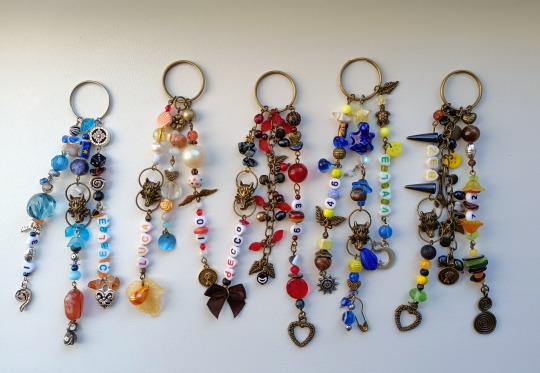
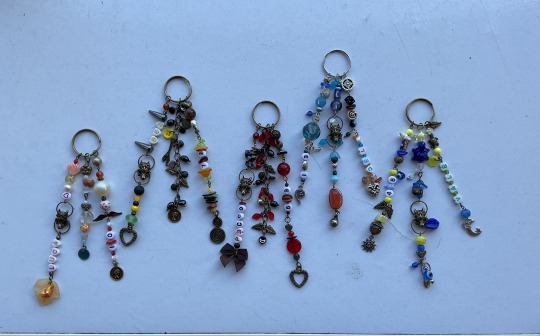
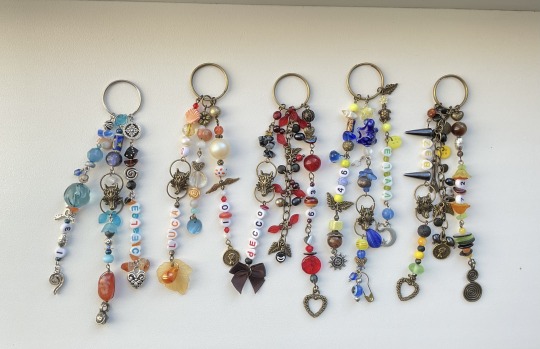
˚ ✦ . . ˚ . . ✦ ˚
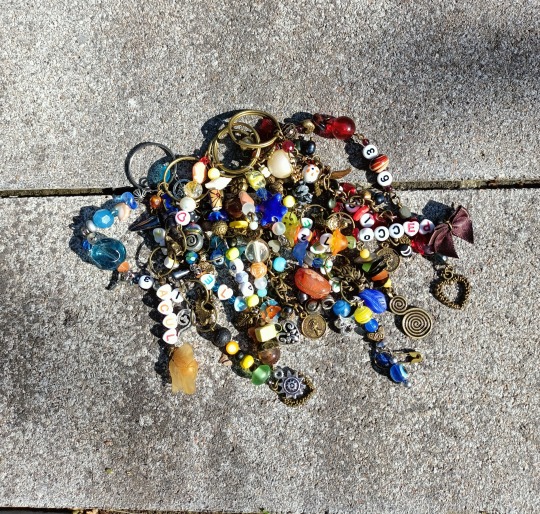
Open for detailed pictures of each one
✩₊˚.⋆☾⋆⁺₊✧ *ੈ✩‧₊˚
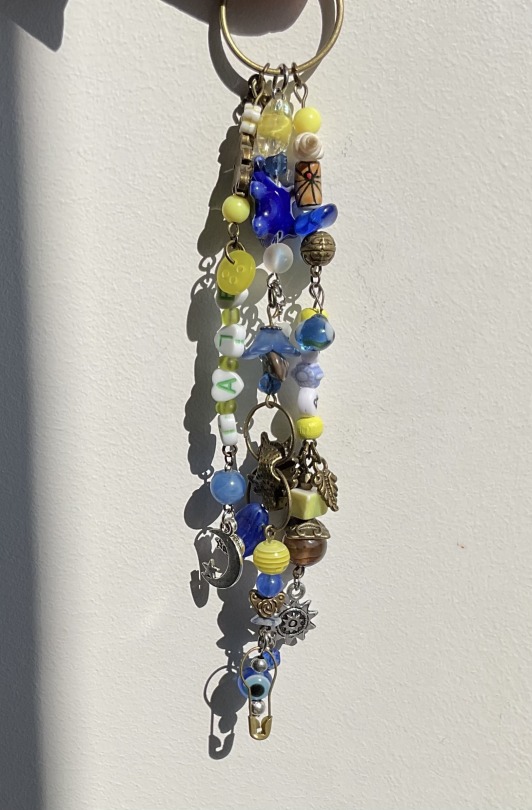
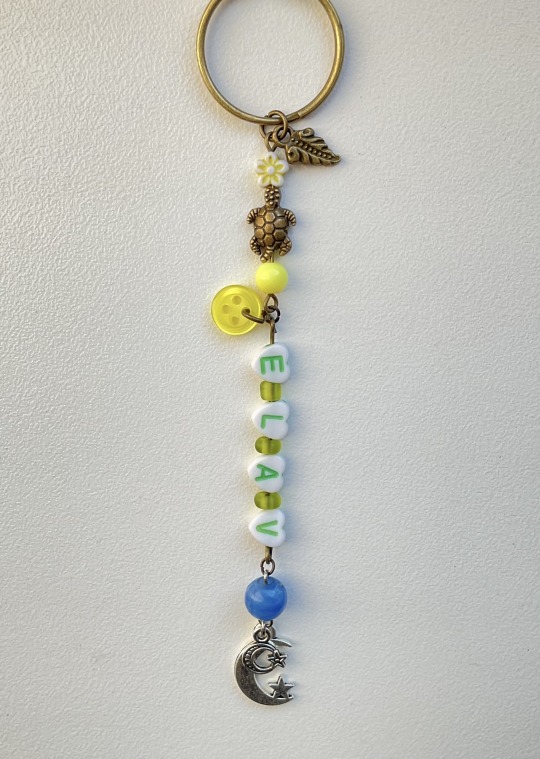
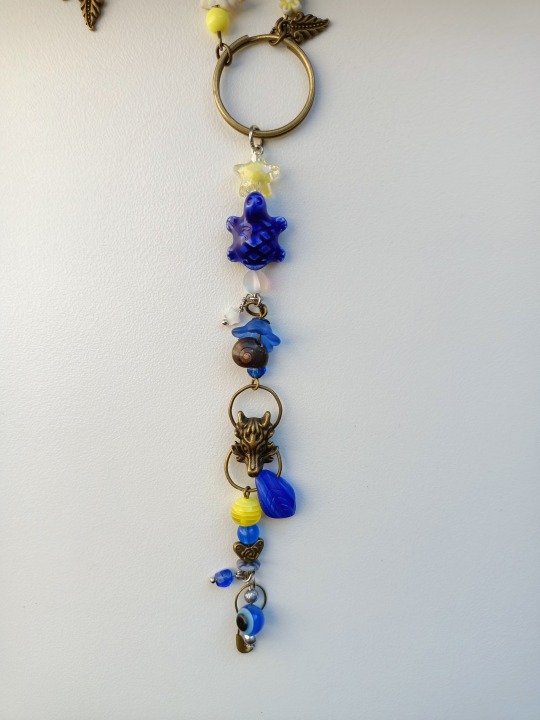
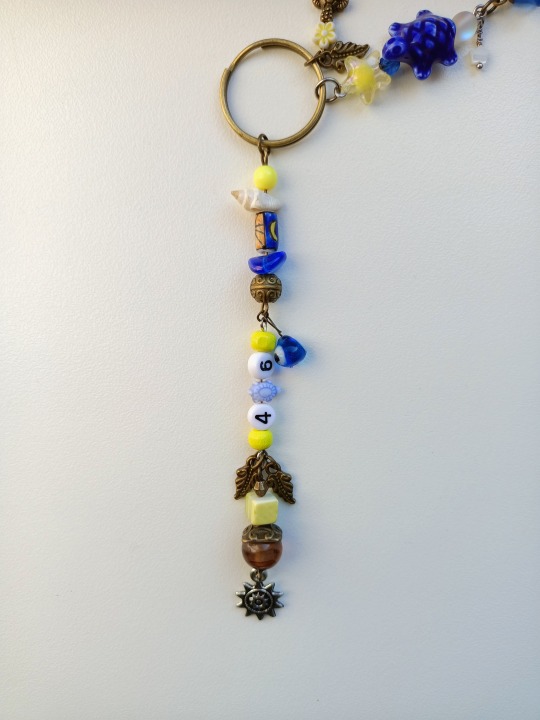
ִֶָ 𓂃˖˳·˖ ִֶָ ⋆★⋆ ִֶָ˖·˳˖𓂃 ִֶָ
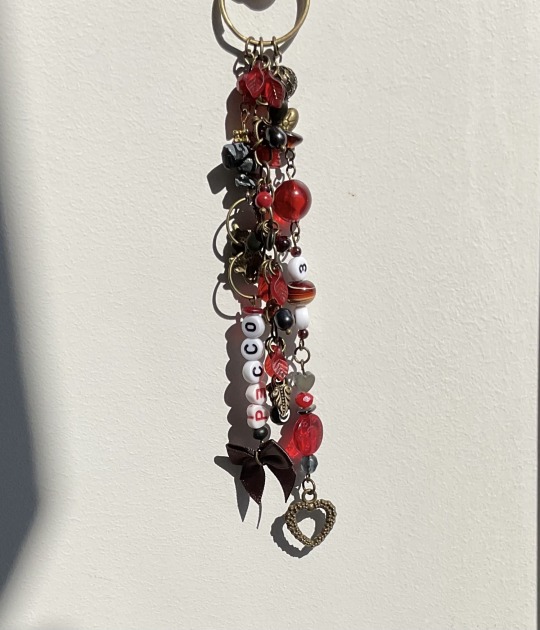
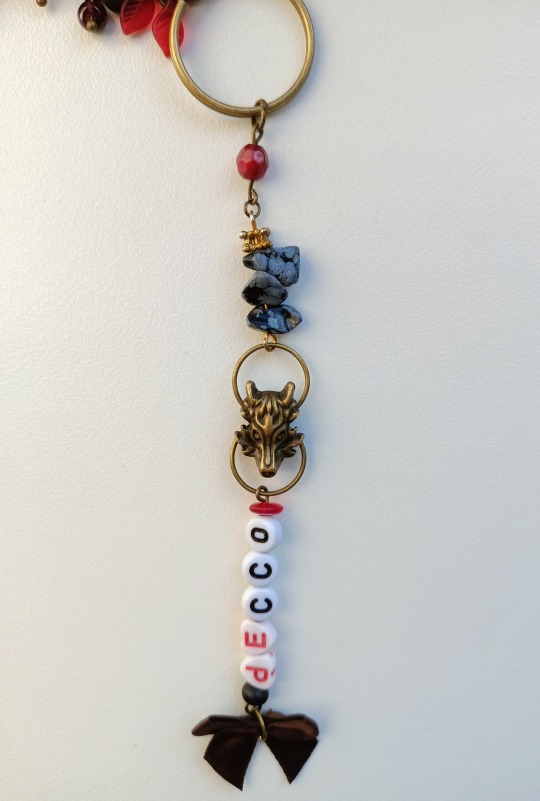
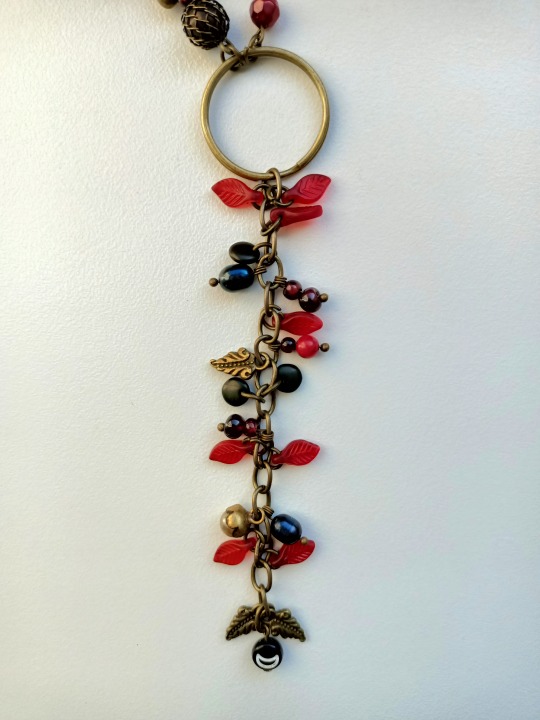
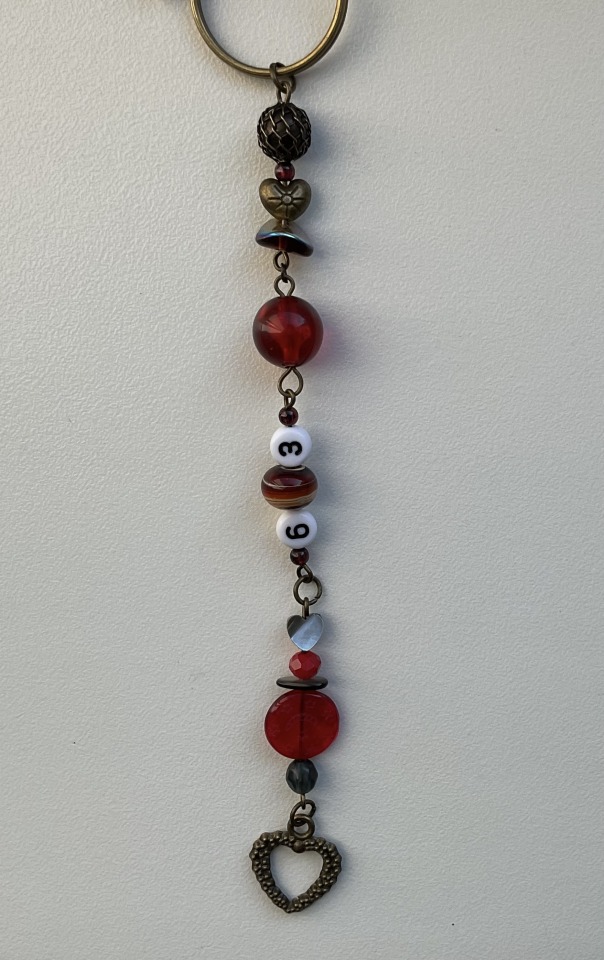
:・゚✧:・.☽˚。・゚✧:・.:
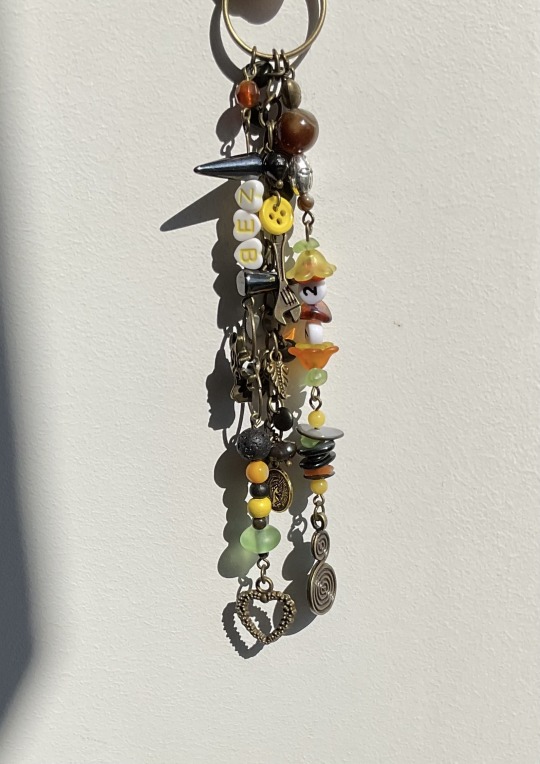
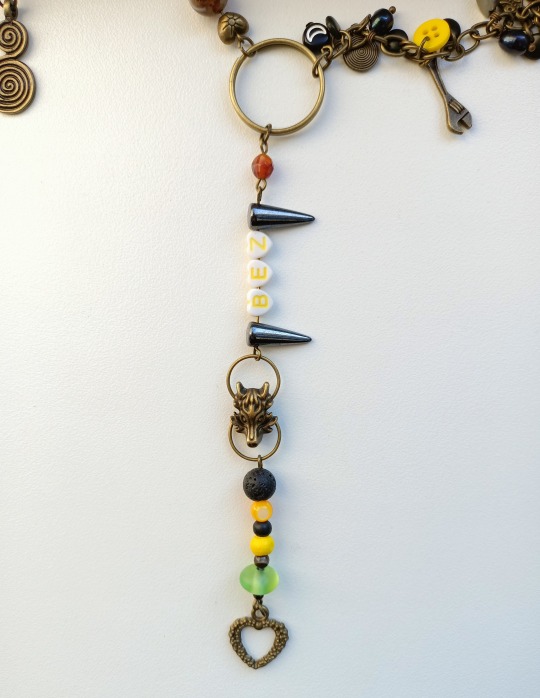
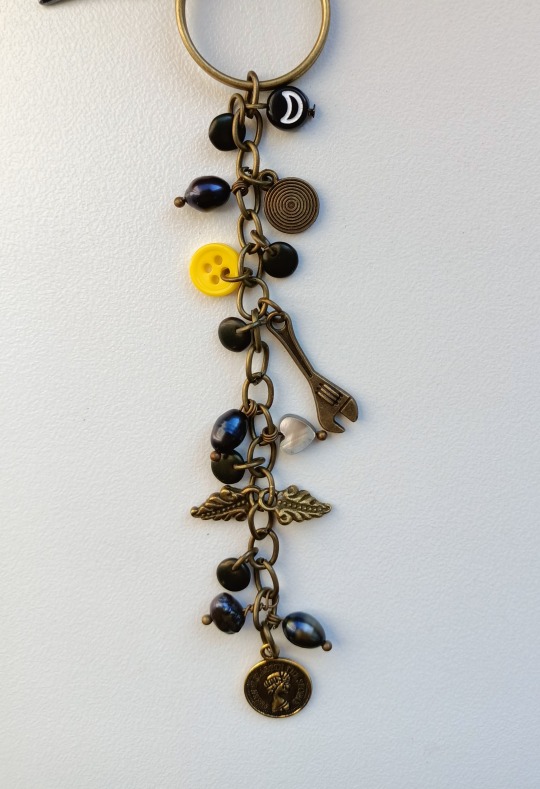
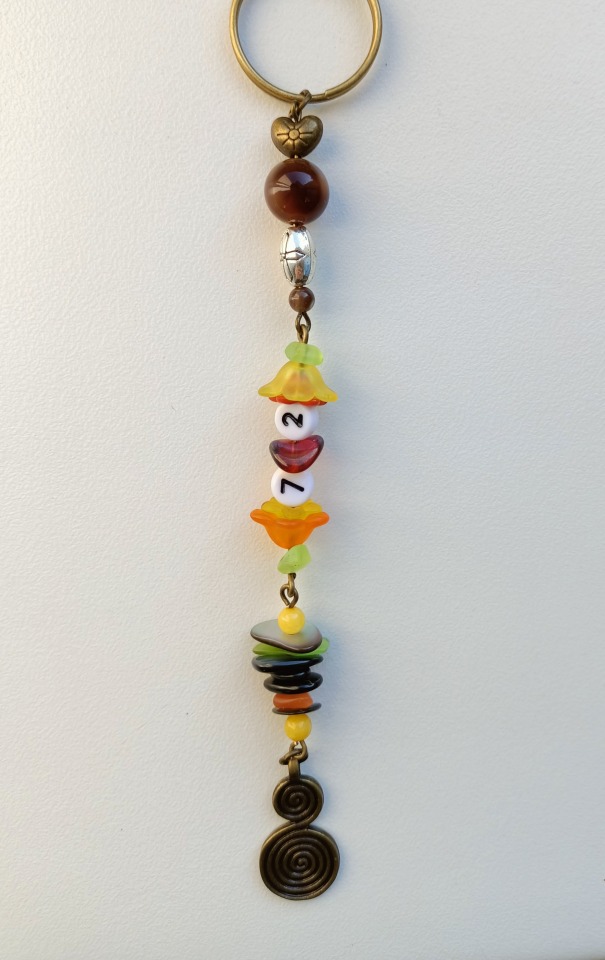
˖⁺‧₊˚⭒✮⭒˚₊‧⁺˖
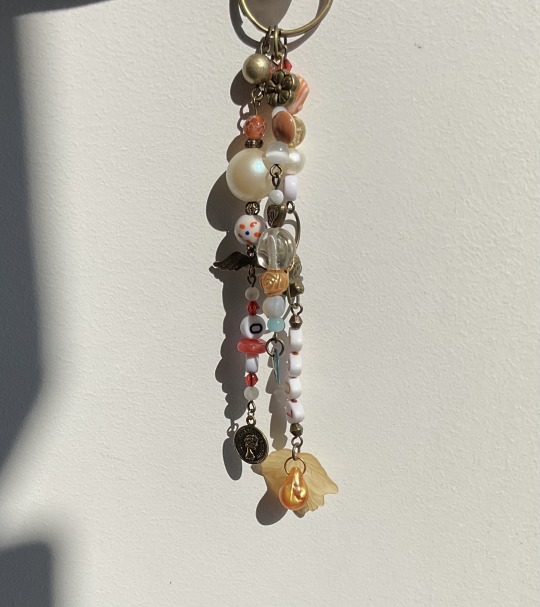
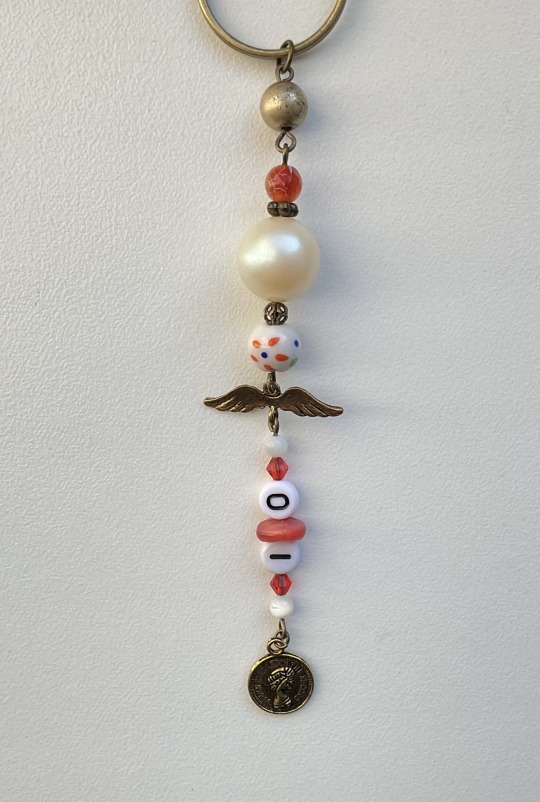
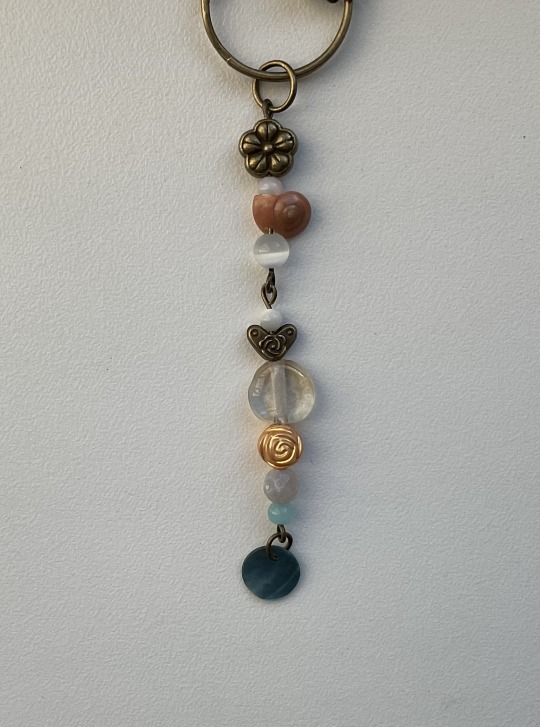
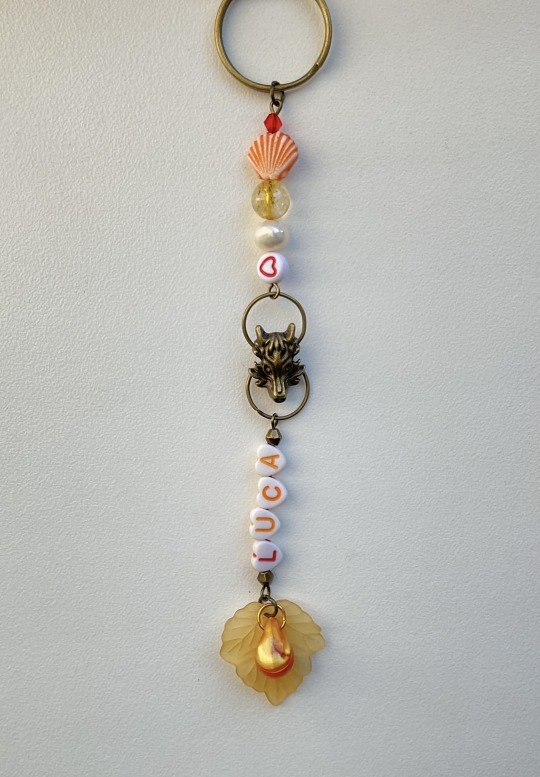
. ݁₊ ✶. ݁ ˖ˎˊ˗
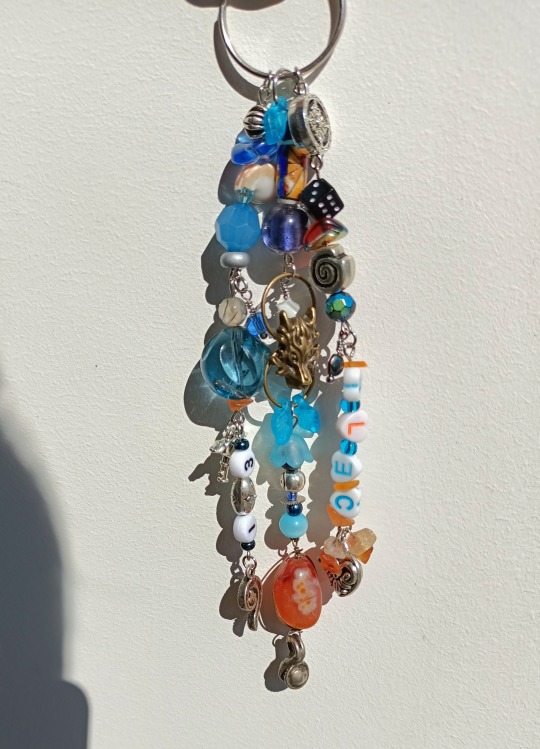
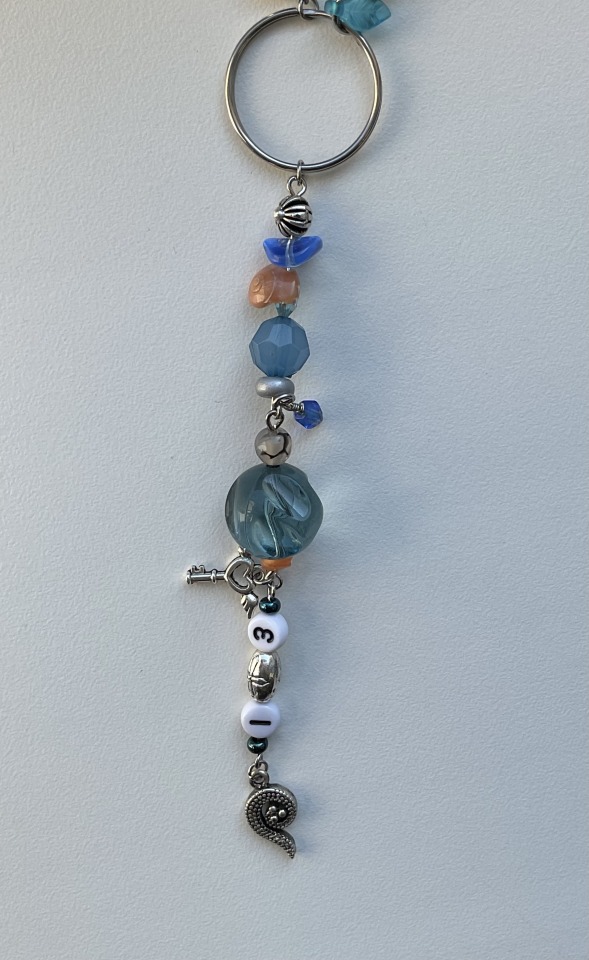
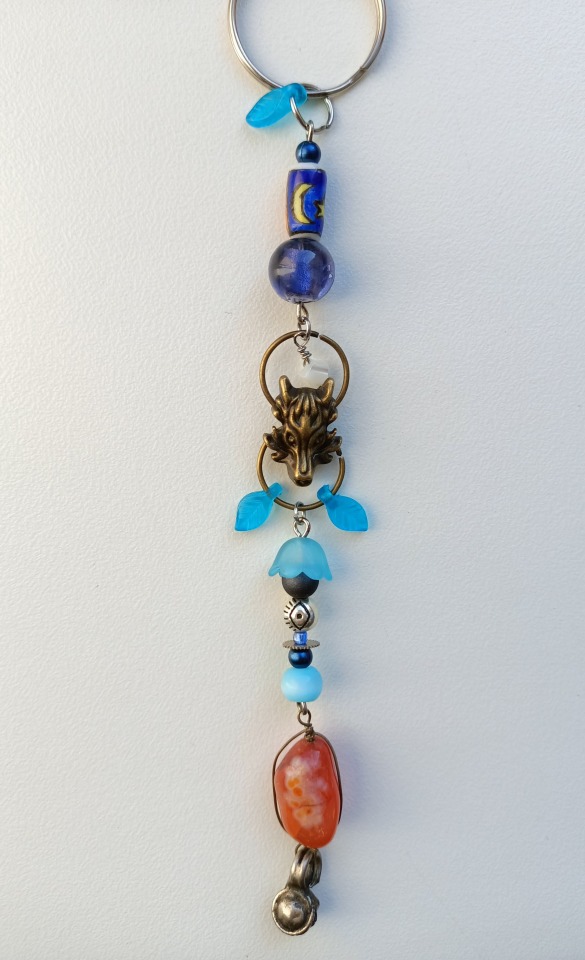
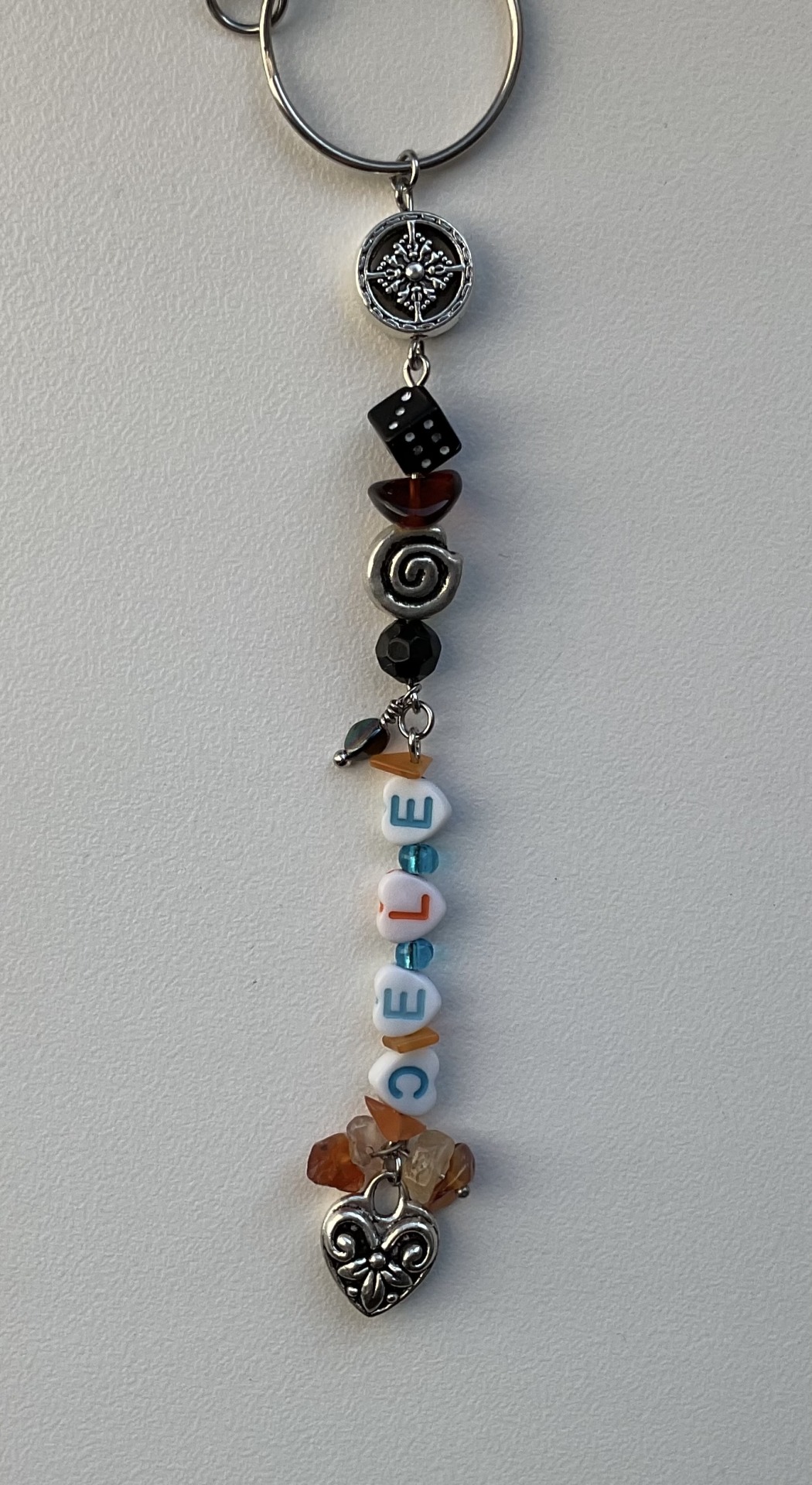
I ran out of tags so I'll say it here but i would greatly appreciate a reblog, especially if you share your thoughts on these pieces in tags (。•̀ᴗ-)✧
(Also i forgot that bez have matching part with luca so I didn’t add that to tags sorry
#motogp#marco bezzecchi#pecco bagnaia#valentino rossi#celestino vietti#luca marini#mb72#fb63#vr46#cv13#lm10#vr46 academy#okay so i fear tags won't be enough for me this time but I'll try tell everything anyway#firstly i used nicknames (should have used maro but didn't think at the time) for everyone because it brings more of a family feeling than#when i do initials and that's exactly what i wanted with them. on the same note the wolves#the wolves were tge first thing that started this idea because i wanted to make bez charm and picked one up and then it expanded very fast#because let's all face it - they are basically a wolf pack and it's extremely fitting. also after taking these pictures i found mettalic on#for cele. and it's a huge slay because i really don't like mismatching colours of metal#probably the only one that i did mismatch is vale but amazingly it looks pretty neat. i also put as many turtles as i physically could#also except for wolves he also has matching beads with cele and luca if you can spot them#while cele matches luca and bez#bez matches cele and pecco while pecco matches only bez. it was quite a challenge to find beads that would suit their different#colour schemes while looking organic in keychains#also for bez i used a wrench bc of his family and i think that's pretty neat detail#it was absolute mindfuck to find beads for five different keychains at the same time because of how different they all are but i tried#also put a lot of effort into not repeating myself as much as j could in structures so they all have their own personalities outside of set#also i love that “bez” part looks like fangs icl#if you see bead that stands out by colour from all others in keychain it's probably for their eye colour because i love to add that too#also used old bez livery because what we had this year was horrible#actually i made it some time ago just never had time to post
85 notes
·
View notes
Text



something bad did indeed happen to that man. spent abt 25 minutes trying to find a better picture of that one (1) offical piece with his eyes open that wasnt compressed or tiny
#library of ruina#yan library of ruina#getting comfortable doodling some objects and mannequin shapes for very obvious reasons. i read the keypage story and now it has a grip on#my brain. wanting to go ahead and plan it out and then draw the mangled memory and nightmare that replays behind the eyelids in the darknes#it was cool to see the reason confirmed from my speculation. twas indeed another reason of blocking out present pain with closing of eyes#considering they made angela have a plot important reason for doing so it would only make sense for another to have a reason for it as well#well. after having a prominent part inside the thumb/index story line. its just going to be yapping about yan now i think#let me add a spoiler tag i suppose? vauge but just incase i dont want to be an asshole. even if most already have played rhe game#library of ruina spoilers#lor spoilers#i really liked the typewritter effect over the voice after distortion. especially so when the effect finishes before the actual garbled voi#does. it makes it feel as if it were being read out after it being written down rather than of own words or volition. along with the text#upon the screen during the fight being just prescripts rather than anything relating to the man himself like the other instances with such#text had been. paired w the name of distorted yan being untranslated to keep the intent of the name being unreadable or not understandable#more into the idea of stripping away of the self or any sense of a self. not personal and not even him anymore. the following of a goal for#the goal for it is given and there isnt any hope of having the ability to not do such a thing. people yearn for a reason and something to d#and for it to be given to them to not hold responsibility nor have to do their own choices anymore. once a crushing weight weighs down#inside the face of an absolute cruelty that is perpetuated and that crushed the dreams or even desires having them be but nothing how can#one move on? it was really nice to see at the end of the fight. its easier to just say such things than to actually do them. even if the ac#ions dont even feel as if they are ones own or that there isnt any say in the matter having to endure all the pain for seemingly nothing it#still is pain. that feeling inside is still real. it still happened. regardless of the circumstances that brought them about#the thumb/index or just fingers seem to be an exaggerated to the extreme showcase of how the colletivist mindset in an unhealthy manner#could be exhibited. the thumb with its hierarchy and absoluteness and the demand for respect along with its strict layers of showing who is#below and who is above. the ability to have power over those underneath . the participation inside of it and the already brought up yearnin#to be apart of a group and to have a title and position inside of a group and of power and even a desire like from pete to join one iirc#the index being of the cruel perpetuating cycle of pain people inflict upon one another a behavior beaten and upkept by the systems as they#drift and desire to live. which causes them to partcipate in that cycle out of necessity. cruel acts upon another in order to live and seei#a need to go ahead and do such things for if they dont they die and another will just do the same to them. social sciences talk and rolands#talks abt how the city opperates reinforce that fact. the index and prescripts are really just a show inside that extreme manner and in a#more literal sense of that. it was really cool to read it..
59 notes
·
View notes
Text
yingdu episode 5 spoilers
ohhh my god this is everything I want from cheng xiaoshi. yes. perfect. sorry, but I'm a cheng xiaoshi whump liker and link click always brings out the best of them in episode 5 of each season.
there's just something cathartic about how when cheng xiaoshi becomes an emotional mess, it's also when he's most disconnected with the people he knows (physically, as he's diving in a photo and his only link to his home timeframe is a disembodied lu guang in his head) but it's also when he's most connected with strangers (when their own personal trauma lines up with his). to me, it's a showcase of empathy and a strange manifestation of his own agency. something about how the disconnect gives him the space to blow up, and the connection heightens it and grants him permission, almost, to express his anger more freely for his own sake and for another person's behalf.
like. listen, okay, I'm gonna ramble now because cheng xiaoshi is my favorite character in this entire show, but listen. sometimes some fans will conflate adjectives to his character that are usually associated with his character archetype, but they aren't necessarily true about him as a character. and I don't mean it in a, "he's not like that because he grows out of those traits" kind of way. I mean it in a, "he was never like that" kind of way.
one of those adjectives, for me, is when people call him immature. he isn't! to me! imo! he's got big emotions, yes, but I personally don't think the presence of big emotions indicates anything about maturity. because you know what? as long as his primary trauma (feelings of abandonment) isn't touched, he is very good at handling interpersonal conflicts, and that's what's interesting to me.
qiao ling hides relevant information from him? he removes himself from the situation to give himself space and sort out his feelings. he tells her he's fine and that he'll be back.
post-earthquake arc? I'll just copy paste what I already said in a previous ask:
what initially got me was when I was first watching S1, I thought the earthquake arc would have devastating effects on [shiguang's] relationship. listen, I didn’t know what I was getting into with link click, but I thought that was expected. it’s ripe for drama! but how do they handle the fight? they put their side business on hold but they still keep being roommates. they still do their day job. they still talk. they’re still upset but they give each other space but not to the point where they can’t stand existing in each other’s spaces. that’s when I realized that oh, they really trust each other. they have a very solid foundation for their relationship that not even the earthquake arc can break. they’re pretty level-headed about this, actually, all things considered? all the doomed yaoi stuff came later, but that’s just the cherry on top. it’s the way they handled conflict and disappointment in S1 that got me.
okay, protect-namine, why go through that whole tangent? BECAUSE! circling back to yingdu episode 5, we finally, finally get to see cheng xiaoshi let out some of his anger. and it's precisely because his primary trauma point was on the table. he can forgive a friend lying, and he can forgive being told not to change the past. because at the end of the day, qiao ling and lu guang stayed. they never left him.
but he cannot handle abandonment. he cannot understand why people leave. he cannot understand why he's been clinging on to false hope this entire time. and more importantly, he cannot understand how someone can be such a hypocrite about it. "a man who'd rather be kind to strangers than face his own son" like fuck man. cheng weimin you fucked up so bad.
it's the disconnect/connect thing again too. thematically, it makes sense. when does cheng xiaoshi blow up? when he's alone, far away from the people that ground him. alone, the feeling he hates the most. he's not even in his own body. he blows up when he's inhabiting a stranger's. he doesn't even get to be angry as cheng xiaoshi.
how fucked up is that. man. I love him so much.
also I'm going crazyyyy over the family themes going on in link click. much to say about the show itself across all seasons (the twins, qiao ling and cheng xiaoshi, even the liu siblings), but for this episode... god. okay this is slight speculation territory now and I'll try to keep this very short, because this is only tangential to the post. but. imagine xia fei getting the good parent figure in cheng weimin that cheng xiaoshi never had. and he doesn't know!! he's bitter inside about his dad and he's having hotpot with xia fei and he doesn't know he was in that school!! fuck that's so good. that's so juicy.

okay, sorry, I have a lot of feelings about cheng xiaoshi. he's my link click blorbo of all time, and I love when he experiences The Horrors™ because it's also when other sides of him gets to shine.
on a brighter note:
VEIN AND CHENG XIAOSHI MEETING AGAIN!!! their greeting was so cute. also omg does xia fei know? that his boss is maybe possibly a cannibal? actually, wait, I don't think I'd be surprised if he does know.
ah and finally. finally:
I've been having many thoughts on how yingdu approaches "friendships" and their transactional nature (mostly with regards to liu xiao) but I mostly thought they're headcanon stuff. but now. I'm so so happy that episode 5 is bringing out more of the quid pro quo theme. liu xiao with the gift giving. wang qing's "friends" (bullies) demanding her to cheat on the exam for them. and now, vein and cheng xiaoshi having a friendly greeting but also exchanging favors. so good. so good. it goes along with how there's so much handshakes and handholding this season (not just with lu guang and cheng xiaoshi, but with cheng xiaoshi and the the antagonist trio too, who have all met him by "helping" him in some way). something something trust and favors. probably something that deserves its own post though, but I wanted to point this out because I am soooo here for that. it's goes hand in hand (ha!) with the whole fraud/lies vs innocence/honesty theme this season, and deals/contracts being an equalizer to the two. very good. very tasty.
edit: ooh they also point to this in the YE6 trailer too. nice, nice. if you knew someone's true colors, would you still be their friend?
man, I love episode 5. it just hits all the stuff I personally wanted to see. the only flaw is that we still haven't seen the older version of wang qing, but yeah I kinda expected that they'll hide her until episode 6. they're giving her the liu xiao treatment from season 2. sigh. really wish she'd keep showing up in S3, we need more female characters in this show 🙏
#mine musings#liveblogging link click#link click#link click spoilers#the fic writer in me is so pleased. this is validating so much of the direction i want my fic to go#i'm sorry if this reads as very rambly. this post could probably be shorter but i don't wanna fix this up to make it read better#my emotions for cxs are too much to be organized in a logical manner#no meta-formatted essay like my post with qiao ling. this is just me blorbofying him#literally half stream of consciousness writing. cxs you are so loved. i love u. i hope you get cuddles but i love when you face The Horrors#because i know you can handle it. and also you needed to blow up like YESTERDAY so honestly this is therapy for you now#actually you know what. i'll probably reference this in the future for fic purposes so yeah i'll tag it#link click meta#actually i'll add one more thing re: maturity but i'll put it here in the tags#something i love about cxs. is that no matter the trauma he goes through. he is still kind#like this could've been anyone's villain origin story. but cxs works hard to be kind in spite of his experiences#like back again with conflating big emotions with immaturity. but choosing to be kind despite it all? it takes a lot of heart to do that
69 notes
·
View notes
Text
Saxaphone player Gallagher has not left my mind since the jazz night art dropped AND THEN Robin saying Halovian’s innately have good voices and Sunday used to hum lullabies to her as kids happened in the 2.2 special program, and I’m sure you guys can see where my unfortunate Galladay heart is going with this.
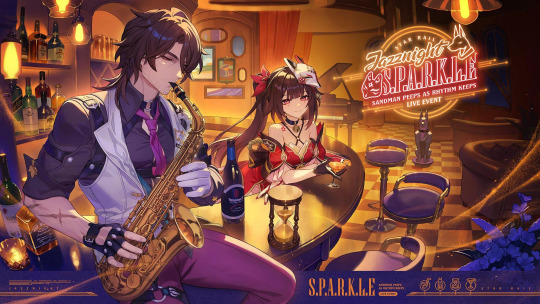
Whoever decided to make this art, I love you. I hope your pillow is cool every night, you’re never stuck in traffic, and your water is refreshing with every sip.
Also the art of Sunday with the White Gentlemen drink in the S.P.A.R.K.L.E jazz night event has also spiraled into me delusionally thinking that’s his go to drink. Which is hilarious since Robin has hinted before that he seems to have a massive sweet tooth in her letters.
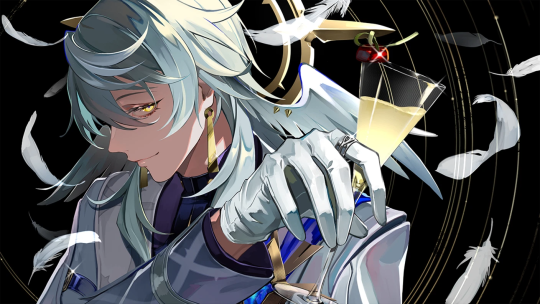
(Sunday how do you even make holding a drink menacing, Sunday please get some therapy-)
So imagine this:
Pre 2.0 Galladay, where they’re both wary and suspicious of each other but didn’t do anything outright. Sunday slowly began to visit Gallagher’s bar whenever he had time to observe the Hound, initially on the down low just to get a sense of what he was working with and what to keep an eye on. He always gravitated to that one corner booth that every bar had with the most privacy, and just stalked there for a few hours before leaving. (Smol menacing birb in a tree vibes)
Gallagher obviously knew that Sunday was doing this (even though everyone else seemed to somehow completely miss him, Gallagher wouldn’t be surprised if Sunday was doing some weird Harmony mind tricks), and after the first few “stakeouts,” he bit the bullet and actually approached the table to engage with Sunday, on the off chance this was some weird “test of loyalty” by the Halovian to see if the Hound would swallow his pride to serve his so-called masters.
Nothing terrible happened, but he remained passive-aggressively polite when serving him, and Sunday remained passive-aggressively cool-headed in response. There was some snark of what dear “sweet-toothed” Sunday would want at a bar, and an icy reply of “aren’t you the master drink smith? Why don’t you show me those skills you boasted about?” which led to Gallagher being petty and giving Sunday the White Gentlemen drink, both for the story behind it being such a metaphor for Sunday, and because it was on the more bitter side of alcoholic drinks.
Sunday wasn’t too against the drink; it wasn’t something he would have ordered if it had been his choice, but it wasn’t a bad drink by any means. He couldn’t help but continue to drink it even after Gallagher left his little hidey booth to go back to the main bar, but he’d never stoop so low as to complement the Hound. Of course, he never ordered anything else from then on, only White Gentleman. In fact, over time it seemed to slowly get better, the flavors grew on him, and he couldn't help but look forward to it during difficult nights in the Dreamscape.
If Gallagher tried to needle him into a different drink, Sunday just bit back a “oh? Admitting defeat? I thought this was your best drink for me?” with a little smirk while Gallagher had to use every bit of self-control to not punch him in the face.
As time went on, the bar slowly became a place Sunday frequented to not quite relax, but to get away from the hustle and bustle of Penacony and his duties as one of its main faces. The stresses slowly started piling up, especially with the Charmony fast approaching in a few months and all that came with it.
Gallagher didn’t seem to loosen up regarding his attitude with Sunday, but he did get better at shoving down the visceral hatred he had for everything to do with The Family and Sunday as time went on. He didn’t get soft with Sunday per se, but he definitely kept an eye out for him, and definitely knew when to cut off his drinks on days where it seemed that Sunday wasn’t all that there for their usual veiled comments towards one another when he went to serve him his drink.
It started small, with Sunday staying later and later until sometimes he was the last one to leave the bar to return to reality. Gallagher wasn’t quite sure what to make of it, still wasn’t quite sure this wasn’t some weird long-term test Sunday was devising, especially since he still seemed to be the same ruthless Family member, the same Head of the Oak Family, when Gallagher was working as a Bloodhound outside the bar. For some reason though, within the enclosed space of this strange sanctuary, it was almost peaceful between the two.
One night, there was something wrong when Sunday entered the bar during Gallagher’s shift. He saw a bit of a crowd near the small stage that was within eyesight of his little hidey booth, it seemed some of the musicians of the live band were arguing? He watched as Gallagher came over, seemed to try to speak with the group before honing in on one of the musicians who had been making the most noise and seemed to be about to get physical with the rest. Sunday watched as Gallagher picked up the musician by the scruff of their suit with one hand and carried them towards the doors and lightly tossed them out.
(It was the first time Sunday had actually seen Gallagher perform anything resembling the actual duty of a Bloodhound. It only hit him that he’d only ever seen the other when giving reports, orders, or at the bar. Why was this so shocking to him, he’d seen the man’s arms before, hard not to with his slovenly dress and messy clothing style, as if he couldn’t bother to hide away his imperfections from the world, not like Sunday who refused to be seen by the world, to dare to show one thing off about himself despite his countless failings- he’s getting far too distracted by one meager showing of strength, focus Sunday)
There had always been a live music segment. Sunday was curious to see what would happen with the band missing a member, but was distracted by Gallagher placing his usual White Gentlemen in front of him before heading back to the musicians without a single word to him. Gallagher took a moment to speak with the rest of the band, who seemed to be coming out of their shock and took on worried looks. Sunday could only watch in muted shock as Gallagher went behind the bar and came back with a case, opening it to reveal a saxophone. He then went on stage with the rest of the group, positioned himself further to the side and in the back amongst the shadows within Sunday’s line of sight, and played with the band for the rest of the night.
Sunday couldn’t look away.
He was frozen as he watched Gallagher seamlessly transition from song to song, taking only small breaks to continue serving the other patrons before heading back in. Sunday only remembered about his own drink when his gloves began to get wet from the ice melting into condensation on his glass.
Something felt off within Sunday, and for the first time since Robin’s debut, he couldn't help humming to the music of the band, music that wasn’t of his own sister’s making. He couldn’t help but remember those little concerts the two would have, taking care of his little sister, his only world. He would do anything to keep the Harmony, to keep their family going. When was the last time they truly spent time together? Before he became the Head of the Oak Family? Before he couldn't recognize his own smile?
He was so lost in his thoughts, in memories he thought he buried, that he didn’t realize that it was once again closing time, and he was once again the last one left. He only snapped out of it when Gallagher came by to grab his empty glass, only quirking a questioning brow at him before heading back to the bar.
Gallagher had been keeping a quiet eye on the Halovian that night from the back of the band, in the shadows he felt the most comfort in when in the Dreamscape of Penacony. He had watched Sunday’s eyes glaze over, and the only reason he hadn’t felt offended by the seeming disinterest was the look in the other man’s eyes reminding him of his own when he looked in the mirror. The same look of shame, regret, loss, longing, of the wishes to regain everything he had lost. The same look he strove to hide under every bit of the facade he had crafted of this new self, but came back all too often with every reference of the Family found within his prison in the Dreamscape.
Maybe it was the shared nostalgia within his own heart, that little bit of his true self that he thought died when the Family tore out everything that made him who he was, that made him return behind the bar and begin making Sunday another White Gentlemen, giving Sunday a small nod to beckon him over. He wasn’t expecting anything from it, and he masked his own surprise when Sunday actually left his little shelter to come and take a seat in front of him at the bar. Even while out of it, Gallagher made note of the quiet confidence the other still carried himself. Nothing seemed wrong to anyone else looking at him, only for the lost look in his eyes.
The first time in the many months that they’ve been skirting around each other, and finally they seemed to be face to face.
It was quiet as Gallagher made Sunday his usual drink, a drink he had been slowly changing over the months to be sweeter and sweeter that Sunday never quite seemed to notice, or if he did, he never said anything, only seeming to savor it more each subsequent night. Maybe not even Gallagher noticed his own changes to the drink, subtle as they were.
It was quiet as Sunday took the finished drink, and it was quiet as his eyes slid over the bartop to see the saxophone case laying open with the instrument inside. It was quiet as Gallagher followed his eyes, as he came out from behind the bartop to take the saxophone out and take a seat in a chair only one seat down from Sunday’s. It was quiet as Gallagher began to play to his audience of one.
It was quiet as Sunday quietly hummed along.
It was quiet as they both knew that it would not last.
OK yea so this was all because I heard ‘La vie en rose’ at the end of the Jazz night event and went “Damn I wish that’s Gallagher playing on his Sax” and then we spiraled.
Uh. Idk what it is with me having a small ship moment which then spirals into a full blown writing session. My mind blanked out and as I came to I find out that I made a whole ass little one shot over here then completely forgot about it WHOOPS
So yea, hope my fellow Galladay enjoyers… enjoyed! I think I’ve slowly begun to crave… not domestic or fluff per se from these two, but after every AO3 fic being super dark between them (which I get! They are the toxic yaoi kings of Penacony as of writing this, no one is denying that!) I think I want to see them be explored in a more melancholic sense. Not quite the “forbidden” love angle, but in the “damn we kinda have some parallels, and maybe in another life we could have gotten along but there’s too much baggage and anger, both historically and currently to really even try anything”
I have this feeling this may not be the last time I write about these two… is Galladay going to be the ship that gets me to actually use my AO3 account?
#hsr#honkai star rail#hsr gallagher#hsr sunday#galladay#idk what I’m doing anymore#they’ve kinda taken over my mind#shoutout to that one ao3 fic where both of them go “’this wasn’t supposed to happen’ as they’re making out#that’s the exact vibes I’m feeling when I think about these two pre-relationship#of course we don’t run away from angst in this ship#everything follows exactly up until the 2.1 end credits scene#let’s see what happens in 2.2#I NEED ANSWERS#ALSO MISHA#I WANNA THROW GALLAGHER AND MISHA’S KINDA WHOLESOME RELATIONSHIP IN HERE TWO#idk wtf is going on there#but until 2.2 explains#Gallagher is misha’s weird drunk uncle/dad figure#it adds more comedy to Galladay whether Sunday knows of/can see Misha or not either way#oof new writing idea#next time#I need to work on tagging#this is just another post all on its own#marrapost
249 notes
·
View notes
Text
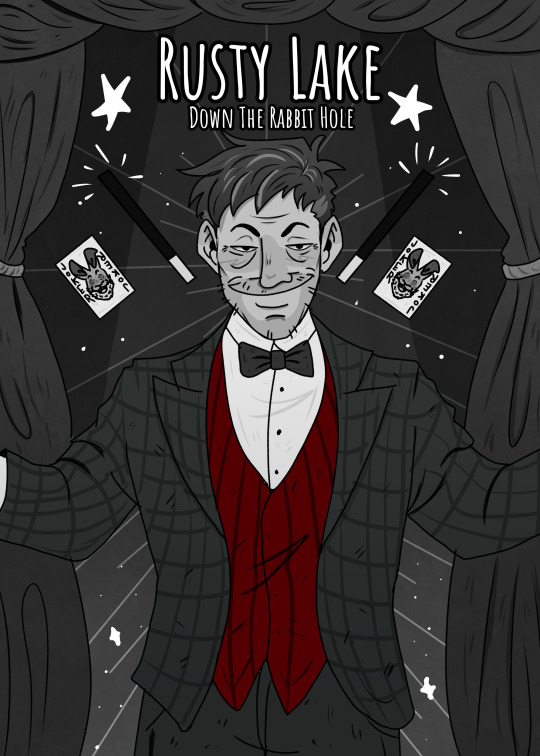

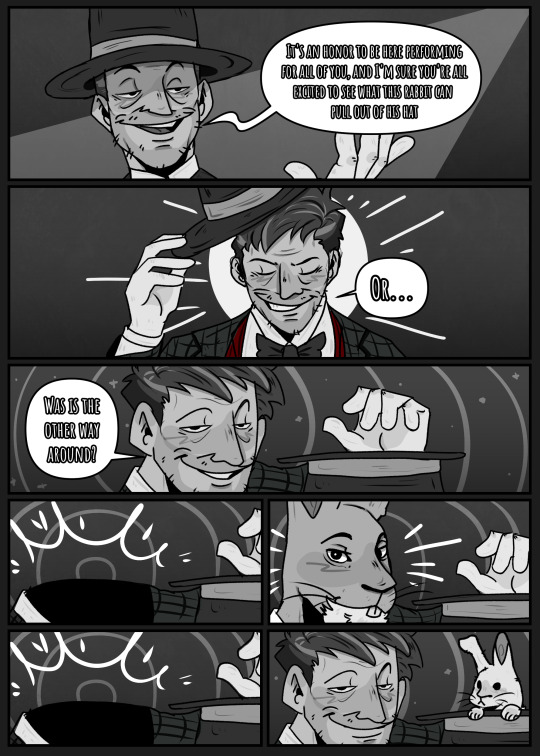
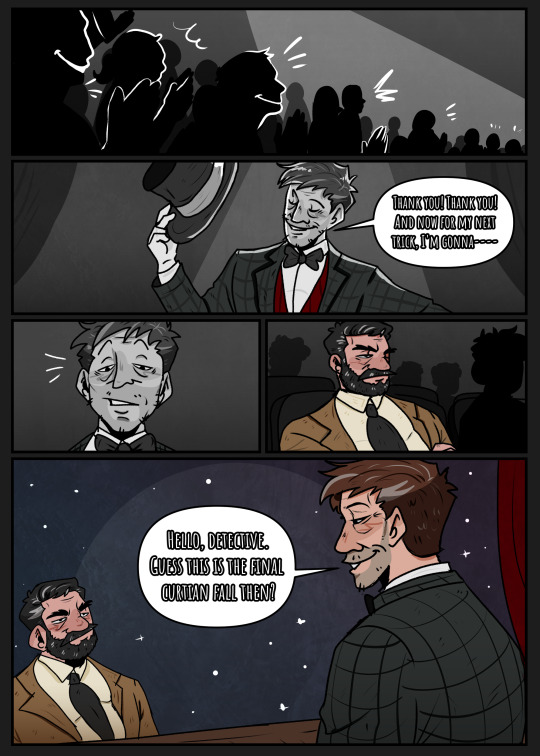
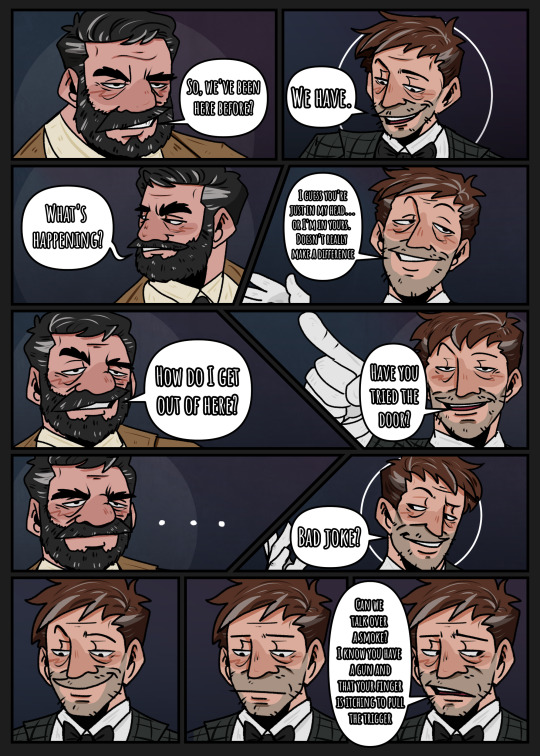


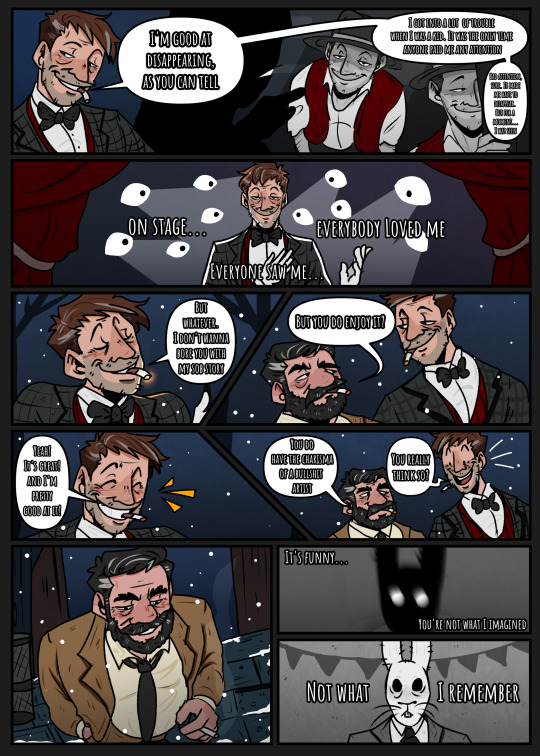

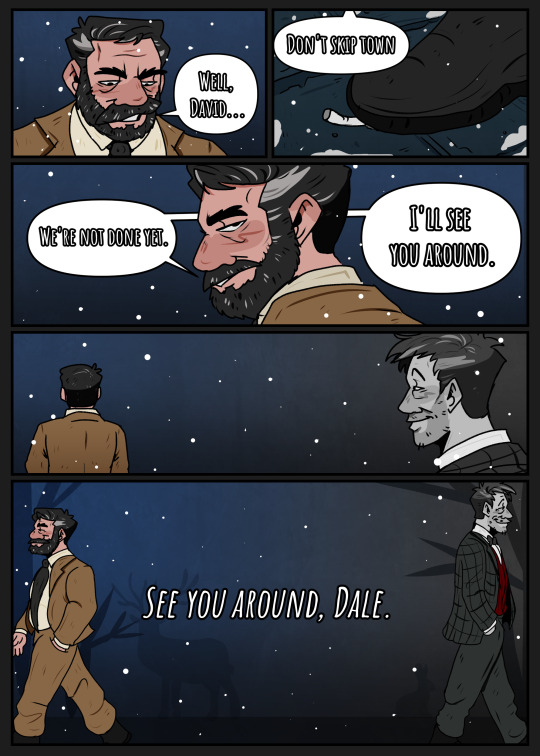
After days of grinding. I finally bring to you---
DOWN THE RABBIT HOLE: THE MAGICIAN
#rusty lake#cube escape#dale vandermeer#david eilander#comic: DTRH#its 1 AM#Im sooo tired#might add more tags when I can think better#for now tho#CURTAIN FALL
302 notes
·
View notes
Note
How are we feeling about ensekai’s emu3 translation!!! (I’m mad)
(if you remember the 3 whole posts i made when asahi got de-gayed on EN you'll know i am mad too and that this is probably going to get long)
i don't like to be too cynical but it was so obvious that they were going to change that line, i had a feeling since the event first released on JP and after the incident with Asahi where I went through and tracked down multiple other examples of EN removing queer subtext it became clear to me that in no way shape or form was "emu-chan really loves nene-chan" making it to EN without getting changed. what i didn't expect was them changing Nene's line after Luka's comment, which actually makes this whole situation far worse than many of their other instances of toning down queer subtext.
for anyone who isn't aware of what happened, in chapter 5 of the current Emu event, there's a scene where Nene, Rui and the Virtual Singers are talking about what would cheer Emu up. The vsingers all talk about how much Emu loves spending time with Nene, leading to the following exchange
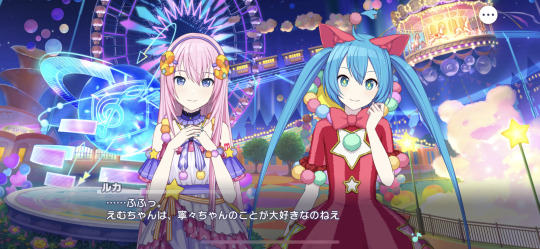
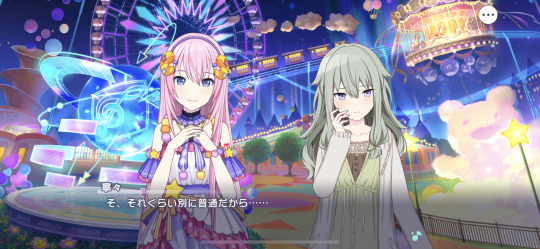
If you look for them, any fan TL of this scene will be something similar to this:
Luka: ...Fufu. Emu-chan really loves Nene-chan, doesn't she? Nene: Th-that's nothing special...
EN's official translation is this:
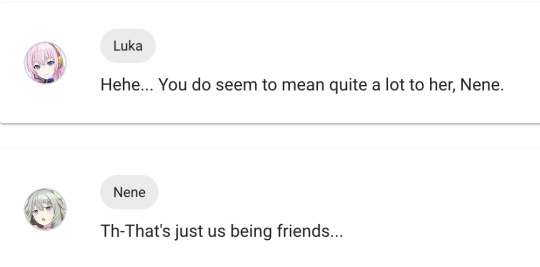
So what's the issue? I'll start with Luka's part. In the original text, she uses the word daisuki, which can mean to "like a lot" or "love". It's a word you will see frequently in the idol/idol-adjacent genre of games, due to its ambiguity in that it can be read as either platonic or romantic when used towards a person, and often will be used in ambiguous situations so that it's harder to confirm the writers' intentions either way. so here, fans of the emu/nene ship could view the fact that emu loves spending her time with nene as more on the romantic side, but people who don't like the ship could view it as platonic and move on.
while they didn't translate daisuki directly, Luka's line still works, and still contains the ambiguity that works as ship tease in the original text. it's a perfectly fine localisation that still conveys the original intent. despite that, there is something to be said about EN's consistent refusal to translate daisuki as love in most instances when it's not used on An/Kohane (but then again, EN has literally teased An/Kohane on their twitter account so is it all that surprising?).
Here's some examples:
Aibou no koto ga daisuki de / he loves his partner -> he cares about his partner very much (The Power of Unity chapter 7 when Kaito is comparing Arata to Akito and Toya)
HARUKA-CHAN, DAISUKI DAYOOOO!!! / HARUKA-CHAN, I LOOOOOVEEE YOU!!! -> You're the best!!! (Dear Me, As I Was Back Then chapter 4 when minori is at an ASRUN concert. this one isn't actually that great of a localisation)
Honachan no koto daisuki dakara. Kore de iinda yo. / I love Honachan, so this is fine. -> I want what's best for her. And this is it. (Leo/need main story chapter 14 after Saki tells Honami she won't bother her anymore)
Minna daisuki de - taisetsuna tomodachi na no / I love them all - they're my dearest friends -> They're all amazing, and very dear to me. (Leo/need main story chapter 17. this isn't good either)
What's particularly amusing about that last one is that there's a second official translation for it that I assume was done by JP staff (since EN never promoted doing the Journey to Bloom subs like they did back when they provided subs for Petit SEKAI) that actually keeps the word daisuki as love.

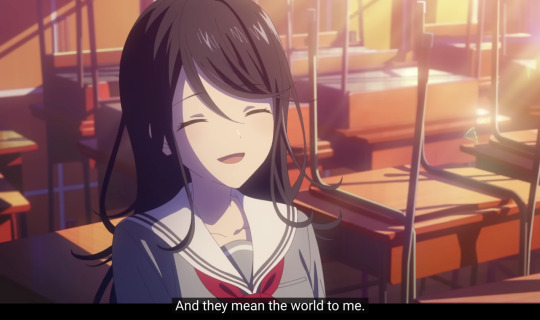
Yeah. I love all my friends - and they mean the world to me.
It's a better localisation than the official EN team one.
Questionable localisation choices aside, Luka's line is fine and is actually in line with the original. The issue with this localisation very much lies with Nene's part, because that is an entirely new line.
In the original text, Nene's "that's just normal" or "that's nothing special" or however you choose to TL it, is meant to be her questioning Luka's statement, since all the things that the other vsingers said that Emu liked were pretty normal things like going shopping and playing video games with nene. To Nene, these things are normal activities for them to do together, so she gets embarrassed by the fact that Luka concludes from that information that Emu loves Nene. When I dissect it like that I think you can really tell what the writers were going for here lol.
"That's just us being friends" does still convey the idea that Nene thinks these activities aren't anything out of the ordinary and she isn't sure why the vsingers are picking these out as some of Emu's favorite things to do, but it's very different from the original line. "But those are just normal things we do together" is something I just came up with on the spot, but it's a lot closer to the original text and still conveys the same meaning. The fact they changed the line to "that's just us being friends" is, honestly, not even subtle that they're covering up queer subtext. The original scene was very clearly written in as ship tease, and EN mentioning "friends" for no reason, especially since the word nor anything close to it was not used in the original, is instantly a red flag because it's like the go-to for queerbaiting and censorship. This was intentional. There was no need for them to specify that the relationship is platonic, Luka's part is ambiguous for a reason so that fans can view it how they like.
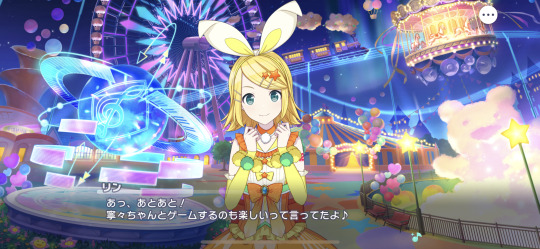
Just to top all this off, here's Rin's original line just before that Luka+Nene interaction:
Oh, and! And! She said that playing games with Nene-chan is also super fun!
And here's Rin's line from the official EN translation:

That's not the same thing, but even more weirdly, the incorrect part (super fun->really loves) is a correct translation for the part changed in Luka's line. So, they can do it, they are willing to say "really loves", just not in the right places. Maybe because Rin's part is less personal than Luka's part? It's strange actually, this isn't the first time they've done this either. Off the top of my head I can think of an example from Shiho's Varied Kindness 2* story where they translated the word "suki" as really loves, despite that being much stronger than the original word used (and the fact that daisuki is used a lot in the Leo/need stories and it's incredibly rare if not entirely unknown for them to translate it correctly).
It's not subtle that they're trying to remove implications of the characters possibly being queer, they did it in curtain call and they did it in walk on and on, and multiple times before then too. And considering some of the content in this year's events and the amount of times they say daisuki alone, it's gonna keep happening. honestly i hate the fact that i keep trying to justify the translations in these posts. these translations are intentional. what happened in the curtain call translation back in october says enough. when a character who uses explicitly romantic language towards another guy passes as a straight character in the translation you know they're doing it on purpose.
oh and once again, it's only the EN server that has this issue. The scene in question was translated almost word-for-word on the TW and KR servers.
read fan translations. they're better than what EN gives us and people put a lot of effort into them.
#since the EN translation qualifies as a leak i am scheduling this to post when the event drops#asks#mod talks#i'm going to leave this in the tags because i don't want to make the post any longer#but something that's been really annoying to see recently on twt has been the gradual uptick of players saying that there's no queer#characters/subtext/etc in the game outside mizuki being trans. and i do wonder if EN's consistent habit of toning down#or outright removing moments of heavy subtext and other more ambiguous shiptease moments has anything to do with it.#that or people live under a rock because even EN keeps most of An and Kohane's relationship intact and there's still plenty of#moments that were impossible to edit or tone down due to being plot relevant or being part of longer interactions that wouldn't make sense#if part of it was changed. like the An wedding event.#eh maybe people are just ignorant.#but anyway it does bug me immensely that EN-only players are getting a censored version of the game. it's 2024. staff can do better.#also like i mentioned in the part about rin. they /add in/ things occasionally. so why the hell are they removing so much?
383 notes
·
View notes
Text
The most embarrassing series of posts about Lawlu you will ever read: edition post-Punk Hazard (part 4)
This one will definitely live up to it's title. The "love is a hurricane" tale continues~

Luffy again showing interest in what Torao is doing. This is already like third time he shows his unusual interest in him (and it will happen a couple more times in this post as well). He really wants to know more about him. Despite the fact he's usually sleeping through backstories of his own crewmates, like Nami. His unusual interest isn't because he doubts Law, we already know he deeply believes him to be a good person. No, this scene exists purely to show us how big and special interest Luffy has for Law. Luffy is also a bit concerned here, we saw the switch happen in Punk Hazard, from now on Luffy will also worry back for Law.

Someone's trolling Luffy here and it's not Usopp, lol. I wonder if this is how Law was as an older brother to Lammy, telling her fake tales just for amusement. He's a teasing older brother type, isn't he? And now all of that is directed towards Luffy. That's so sweet.

Luffy, you were supposed to tell them before, why are you telling them only now?! Take things a bit more seriously!
Law though is so displeased. Not only a hand was slammed into his arm (he secretly liked it despite everything), he was told to get along (he doesn't want to!), and Luffy disappointed him for not sharing about the alliance before.
But let's stop at the "get along" complaint for a bit. Luffy, you goofhead, you didn't introduce Law to your crew?? (and please, don't you know Luffy, ofc Luffy didn't do it "offscreen", this is Luffy we're talking about! He doesn't do introductions! At all!) Poor Law doesn't know their names! How is he supposed to get along with them?? You think Law would ask them about their names? Definitely not! Can you even imagine Law asking about anyone's name?? (yeah, I can't either lol) So to save up his face, he would have to utilize all that info he gathered beforehand (he already knew who they were all the way back at Sabaody after all!).
So he recognized Robin, Nami, Zoro, Sanji, Chopper (and so is able to call them by their names, tho it's worth noting Sanji being a special case and referred to by his title), but he didn't apparently know about Brook, Franky or Usopp (because they got called Bone-ya, Robo-ya and Nose-ya instead of their names+ya). Brook got recruited in Thriller Bark so there wasn't any wanted poster for him back then in Sabaody, so that's understandable. There was one for Franky already, but before timeskip Franky looked completely different so Law didn't recognize him. And...
wait for it...
He didn't recognize Sniperking as Usopp that's why he became "Nose-ya". Yes, the joke lives on! LOL.
Oh Luffy, you really don't make Law's life easier for him, do you? And this way Law got exposed that he did research a bit about the Strawhats before, enough to memorize them. (I mean not like Bartolomeo, but... but! It kinda looks a bit like that here, doesn't it).
Law will get back at Luffy in Zou for that, no worries. Now you will never see the "Law didn't introduce his crew" in any other light from now on, haha. It was a payback. Luffy didn't care tho lol.
You don't have to believe me on that one, but you can't really deny it does sound suspiciously consistent, doesn't it? :3

Law: Why is everyone telling me that?
Also Sanji, we appreciate it, but you're a little bit late with that warning there lol.
To be honest, I think Law is actually perfectly aware of that, but at the same time he wouldn't mind to be called a friend anyway. He only minds it now because he wants to keep his distance and not form any attachments on his way. And doing poor job at it too.

Luffy looks so happy sitting there next to Law, he looks like he's having the best time in his life. He's probably having a lot of ideas of what to do together with Law now that they're friends in alliance. (many of which would not be met with Law's enthusiasm probably lol).

Luffy: Did you just say dinner will happen 5 times a day from now on??
Luffy's level of excitement here is absolutely stunning. And one more thing very important to note: remember how Luffy usually acts when someone yaps a lot? He might for example ask Nami about something difficult, but quickly loses interest with the answer. He often sleeps through explanations. But here? Law's got his full attention! The one who is actually napping through this is Brook, not Luffy. Luffy thinks Torao is cool and he *wants* to listen to him.

Law, where are you looking? Clearly at your favourite Mugiwara-ya grinning over there. His eyes are always tracking Luffy.
A moment later Luffy turns to see Kin and Zoro fight. Do you all think he noticed Law staring at him right there? You two need to stop being so cute. I can't even believe Oda actually drew a scene like that in shonen, even if he didn't make it obvious. I mean, look at it, Luffy's eyes are shining, I bet their eyes met. I told you all that One Piece is a story about love. Omg I'm disgusted with how this scene tugs on my heart right now. To be fair, I'm not even the first person to notice that Law is staring at Luffy there, I saw people pointing it out before.

Luffy: Hey look Law, we're famous!!
Law: But ofc we are, what do you mean?
Luffy is again trying to get any sort of reaction out of Law directed just for him (did he feel encouraged after he noticed Law staring at him the day before?). Luffy, please, stop, this is getting more and more embarrassing to watch you craving for Law's attention like this.
Law though always gives him that attention, curiously enough. There's not even one frame of Luffy calling out to him and Law just ignoring him. Which shouldn't be surprising, Law always seeks out Luffy as well, rarely with words, but at least with his stares.
In this regard, they're a really good match. Luffy wants to be pampered, and Law wants to pamper. I would usually say it's gross, but it's actually really heartwarming. They both get something out of it that they were both craving.

Law: Hey, am I not providing you with enough entertainment? Forget those boring fellas!
Someone's a bit jelly...
And Brook is again watching over them. God, I swear, it feels like he just *knows*.

Again, Luffy listening to Law talking. He would listen to him no matter what Law is saying, wouldn't he? Luffy is known for his terribly short attention span, but for Law he is capable of unusual feats.
(Also notice Law is always grabbing Caesar by his clothes, never in direct contact)

Time for the ransom call. I know that everyone is screaming there, but Law is suspiciously quiet, this is when he should be firm and confident, but instead he's just standing there. I think it means he was actually pretty anxious about this call, kinda taken aback (and it's not because of people screaming around, he had enough time to get used to that with the Strawhats, also usually it doesn't actually faze him). Luffy on the other hand is excited and thinks this is all super fun lol.

And then Luffy goes and takes over the call. Of course we all think he did it just because he's Luffy and that Law is displeased/angry here, but let's do uno reverse. I might turn your worldview upside down from this point on.
What if Luffy actually sensed Law's anxiety and decided he will help him? Luffy is after all really good at reading people's emotions, right? And of course he would want to help his beloved Torao.
Law looks displeased, but that's because of a sudden closeness. Those of you that followed my series on Law's fear of touch and closeness know what I mean. He can stand Luffy when he's close to him, but not out of a blue like that - he needs to brace himself first. That's why his first instinct here is to try to move away. Sure enough, right in the next moment we see Luffy holding the transponder, which means Law lets him do that actually. If he truly was so displeased and angry, he would have reacted faster to take it back or shouted at him.

Luffy's fuming here for no reason whatsover, Doflamingo didn't actually say anything bad to him yet (or at all really). Sure, Luffy got mad over Caesar, but the conversation already changed to something else, and Luffy is still showing an attitude. He's doing it for Law, isn't he.
Law meanwhile is just standing there, still not attempting to take the transponder back. He's not even trying or talking at all. This really doesn't support the idea of "he's so mad at Luffy for doing this", it actually seems to be the exact opposite: he's kinda overwhelmed here and was ever since Doflamingo picked up his call. Ofc he's also more and more distressed now, bracing himself mentally, because he knows he needs to do something and can't leave it all up to Luffy.

Law realized he needs to stop it, because Doflamingo is trying to bait Luffy, and everyone knows Luffy is weak to baits. In a way, stepping up just to prevent Luffy from getting into dangerous scenario, helped him overcome his own helplessness and anxiety. Luffy meanwhile indeed is losing it lol.

Let's look more closely to Law and Doflamingo's conversation here. Law is trying to make the talk very short, down to business and finish it off quickly. Doffy though stays confident and even tries to mock Law a little bit. It's almost like he's saying "Law, kid, you forgot to show me that my subordinate is fine, you need to step up your kidnapping game a little", he's kinda having this patronizing vibe here. "First step of a ransom call, remember? I taught you that myself".
Putting it all together can explain why Law is so anxious, he expected to hear Doflamingo all devastated, angry even after giving up warlord's title, instead Doflamingo is relaxed, mocking and confident, generally acting like he has the upper hand here. Law is worried, did he miss something, because this is not how it should look like, and he is right. Also he can't stand Doflamingo's confident tone, it's most likely making him feel weak, remembering the past. In their fight in Dressrosa Law will try his best to overcome this feeling by mocking Doflamingo back, but right here he was surprised and unprepared. He probably felt again like a kid, still part of Doflamingo's family, and Doffy's mocking tone like a mentor/parental figure scolding his clumsy subordinate truly added salt to the wound.

Law grits his teeth and continues, attempting to finish the call as soon as possible, full of bad feelings. And this is when Luffy snaps back to reality, gasping and reminding himself "I need to help Torao!" and so he does, by doing actually the best thing possible: cutting off the call.
This seems not-canon to you I bet, but I truly think Luffy tried to actually support Law here and it DID work in the end.

Of course Strawhats don't catch up to it and think Luffy just straightup ruined everything, but look at Law's reaction here. He's suddenly calm and does not blame Luffy for anything, in fact, he goes as far as to declare this is all fine. Would he really say something like that if he was truly angry? No, of course not, we have seen him angry everytime he truly believes his plan was just kicked out of the window by a Strawhat Luffy. This is simply not the case here.

Law is still looking pretty anxious there, probably thinking over multiple scenarios in his head. What did he miss? Why is Doflamingo so confident? This is crucial, after all it's not only about his own safety, but safety of Luffy and his crew.
Luffy meanwhile shows his interest in Law again, wanting to know about Law's adventures. He's probably trying to make Law think of something else instead of overworrying, put his mind off of it. Luffy really sticks with his resolve here of taking care of Law as well.
Also it's ultimately cute how Law is mechanically correcting Luffy on the name of the island (helpfully pointing out only the part he got wrong so it's a shorter word to remember for Luffy, awww), but he does it without even an exclamation mark there. He's not angry or irritated about it. In fact, it just shows he understands Luffy has problem with long and complicated words. He probably knows that's the reason he became "Torao" as well. He gets it, he accepts it, in fact he has no problem with it whatsoever.
Even when distressed and lost in his thoughts Law makes sure to still respond to Luffy when he asks something from him, and Luffy this time uses it to bring him out of his thoughts instead of just seeking attention.

Luffy: Yay, so if Torao has never before been to that island, it means we will have an adventure together! And not just one, there's no way I will let you leave me right afterwards. We're so gonna do more adventures! Dressrosa and Wano! Two adventures with Torao!
Law: This isn't an adventure, be serious!! Our lives are on the line!!
Luffy: Breakfast time!
Law: Breakfast time! *gasp* fuck!
Someone got caught up in someone else's pace. 1:0 for Luffy, he did manage to make Trafalgar Law take a break from his worrying.
Now to understand Law's exaggerated reaction here as something more than just a comedy moment we need to first elaborate a bit on the chapter's title that sets the tone between Doflamingo-Luffy-Law interactions and honestly spans through the whole of Dressrosa arc. This is chapter 700 titled "his pace", the next round chapter is 800 which wraps up Dressrosa. Chapters with round numbers tend to have a huge impact on the whole storyline happening (because Oda really loves his number games).
"Pace" from the title means someone dictating how fast the events are going or swaying things to move in their preferred fashion. Doflamingo does it in this snail talk by playing confident and trying to bait Luffy and undermine Law's confidence. Later he also showers his subordinates with compliments so they will do what he asks them to do - that's also setting pace by keeping everyone in line.
Law's pace in this chapter (and in whole of post-punk hazard transition) was him spiraling the things to move where he wants them, his first snail talk with Doffy was just Law having an overwhelming victory over him. Then through the span of one night things move very fast exactly towards the result Law wanted (Doflamingo resigning from warlord's position). Law usually doesn't use his power of controlling pace to make people do what he wants (unlike Doffy), that's not his style, they're just forced to stick for the ride, but he always leaves liberty in their own hands. For example, when he told Luffy to kidnap Caesar or assemble back Kinemon, he didn't tell them exactly step by step how they should do it: instead he left it to their judgement. In other words, he tells them what to do but not *how* to do stuff, he instead trusts in their ability to figure it out on their own.
And then we have Luffy, who selfishly chooses islands they visit and what enemies they're fighting, so he's also "setting the pace" for others. He controls it to a minimum as well like Law, he just makes sure to take care of the biggest danger himself and trusts the others to do whatever they want, he gives them freedom. His crew do their best out of their own free will to deserve Luffy's trust, every chess piece on the board moves according to what they believe is right, so Luffy's board isn't actually a game of one vs one, but instead of one versus many, because every player has as much liberty as Luffy has.
In this chapter Law lost to Doflamingo's pace, but restored himself, and lost to Luffy's pace and this time declared defeat. Doflamingo won against Law, almost won against Luffy, but then Luffy defeated him in one neat swipe. And why? Because Luffy actually wasn't playing alone, Law and Luffy supported each other there. So in the end Doflamingo lost to both of them.
You think Law didn't take a defeat against Luffy here? Then let's rewind back:

Remember this scene? Law was amused that Smoker would even think that Law can overpace Luffy (after all Luffy punched Caesar instead of kidnapping him and did a feast instead of leaving immediately), but he wasn't going to always allow Luffy to do that. Here he declares he's gonna set the pace and make Luffy follow his plan. He does it because it's neccessary or he won't be able to protect him, but also because of his petty pride or "saving up face", if you prefer that term here. He's not gonna just sit there and let Luffy do everything he wants and wait for him to finish off enemies. Law is throwing a challenge, he's gonna compete with Luffy in that regard.
But before they even reach Dressrosa Law already declares his defeat. Let me show you how: remember how he always loses his hat when he's losing?

Like here. Or in Dressrosa, or Winner Island.

Wait, where's his hat here? And this is the next frame after Law's big comical "gasp" moment, when he got dragged into Luffy's pace of "enough worrying, time for breakfast!". Yep, he knew he lost there, allowed himself to loosen up and took off his hat by himself as a sign of his defeat and Luffy's victory. But that's also because he's just a good mannered boy who knows you don't eat with your hat on.
It truly is a 1:0 for Luffy and Law is actually okay with that (losing to Luffy's pace is actually not a negative experience, because Luffy doesn't manipulate people with evil agenda in mind, like Doflamingo. He did it only because he wants Law to relax). And this sets up how the events went on in Dressrosa.
Also can I just point out that all it took for Luffy to sway him was to declare with a smile "Yay adventure with Law! Can't wait! And now breakfast!" and Law was already dragged into his pace? I mean... Law, Luffy didn't even do anything special. He was just basically himself there. Law's so smitten with him that it's all it took, honestly. Of course the support he got on that call from him also counted into that, but Law didn't declare defeat then yet, after all he also supported Luffy back in that call.
In later arcs Law will still attempt to be petty about this ongoing "competition", not wanting to leave it all up to Luffy, lol. He migth have lost once, but the war is ongoing! He's such a petty loser, I adore that flaw in him.

Luffy butting-in, making sure Kinemon doesn't just steal Law away for the Wano adventure. Hey, I'm gonna be part of that adventure as well!
Law's attempt to stop him there is really miserable. He can't bring himself up to deny Luffy when he sounds so happy, huh. My heart can't take it.

Law's already back to worrying again haha. His neverending journey of worrying when together with Luffy continues! Let it never end honestly.
He's also conflicted, because everytime Luffy acts so excited he thinks back to Lammy, as she was the exactly same energetic type of a person as Luffy haha.
i don't think Luffy gets it that this time around he's only making Law worry more and not less, awww.
That's all for now. Dressrosa will come up next (I might take a break from this series to answer some asks first :D). I hope you enjoyed seeing this chapter through different lens, it's fine if you still prefer it as just a comedy moment of Luffy acting like a complete menace and Law regretting his life choices. I think it's neat that the manga supports actually both interpretations, one on more casual level and the other more in-depth.
There is something I want to share about World Seeker Law's dlc, it's not really a spoiler, just one line that Law says that relates to the previous part of this series of posts (if you want to skip it then just don't read from now on! There's nothing more to this post afterwards).

This is what Law says in the game. I know that games are not considered 100% canon, but Oda DID work on both World Seeker and Odyssey, and honestly many lines and overall feeling of the game goes along with the canon. Law's complicated relation to closeness is definitely a part of this DLC, for example.
And here he says he doesn't mind what people actually call him! He never complained about "Torao" when Luffy called him this way, not even once. But he does make this one sour face when Nami does that as well. Makes one really think why is this such a special case for him, doesn't it? :D Again, he wants it to be a special name only from Luffy, doesn't he.
#one piece#trafalgar law#lawlu#luffy#lulaw#luffy x law#love is a hurricane#one piece meta#I adore your tags cooknumber3 <3#lawlu is also my fav brand of chaotic and stupid and also heartwarming#despite Law's attempts to keep it cold#at least I have something to dig thanks to him and it's not easy to figure out what's under his facade#I hope to deliver even more delights :D#also you made me want to make it all into a video just so I can add a sappy romantic track when they meet up in PH#everytime I type PH I think of Pyramid Head not Punk Hazard lol#Law would be the perfect protagonist for a horror game actually#anyway I still don't think it's a romantic love but it's embarrassing af geez
133 notes
·
View notes
Text


can you keep a secret ~ ?
#fanart#dcmk#detective conan#kaishin#kudo shinichi#kaitou kid#kuroba kaito#mine#useful tags end here. yapping ahead. save yourself#u ever get an idea and go hmmm lets see if we can do it#and it quickly becomes apparent that the answer is a resounding NO#but now ur IN IT to LOSE IT so u keep going long past when u should have given up and attended to your responsibilities#we love sunk cost fallacy. in this household we never lose an opportunity to succumb to her wiles#anyways thats the story of how i neglected to catch up on my backlog on a day off. i hope you all had a more productive friday#ngl the og piece/first img was so strange and unusual i had to draw the second to figure out wtaf was going on#and since i got that far i figured i might as well just shade & add it......#also spent a while trying to figure out how to configure the finger so it wasnt in danger of delving for gold as it were ykwim#i used to have a teacher that would always say you could pick your friends and you could pick your nose but not your friends nose ....#maybe thats what true relationship goals are /j#sorry i have no filter#blah blah blah i have a lot to say all the time and all of it is dumb asfk if u read all this shit ur a real homie fr 🤞
29 notes
·
View notes
Text
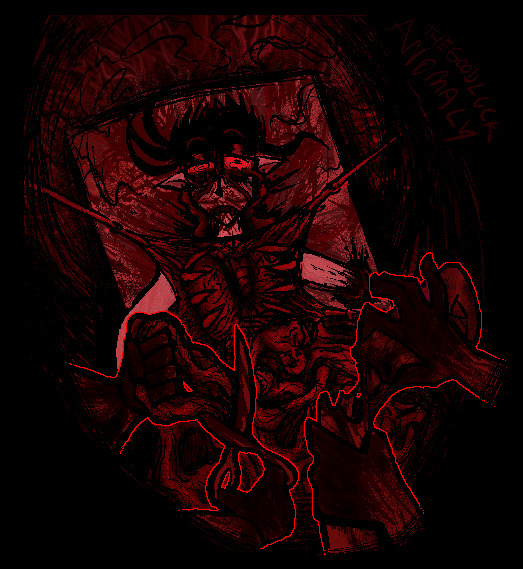
POOR GABRIEL MONTEZ! YOU NEVER SAW THIS COMING DID YOU? ALL YOU WANTED WAS POWER. SECURITY. SAFETY. & THATS EXACTLY WHAT YOU GOT! JUST IN EXCHANGE FOR YOUR BODY. LETS JUST HOPE NO ONE FUCKS THIS UP. LETS JUST HOPE YOU WONT HAVE TO CLEAN UP THE MESS.
#jrwi fanart#jrwi show#cw gore#jrwi suckening spoilers#jrwi suckening#jrwi gabriel#jrwi gabriel montez#LOOK FAMILIAR?hahahahahDONT WORRY#IM REUPLOADING THIS HERE BC i fixed up the drawing a lil. and also i wanted to add main tags#U WONT SEE ANY DIFFERENCES BETWEEN THISSUN N THE POST ON MY SIDEBLOG.i changed the image there too.HA!!!!!!!#ANYWAY.i rambled plenty about pain and gabe on my sideblog.SO LETS TALK ABT THE ART SHALL WE.ihad i very hard time getting the colors down#would u believe i nearly left this uncolored??FUCKED UP!! it was only a sketchhow did it end up like this. it was only a sketch...#BUT IM RLY GLAD I WENT W COLORING IT.this time i actually used the airbrush n pencil tools BUT i also have a handy dandy brush i made#its just the mspaint air brush tool. fucking LOVE THAT THING. but now its in fire alpaca and it can be slightly transparent.IT LOOKS SOGOOD#perfect for splatters and grime.i love you mspaint i love youuu.im also so happy w the blood here.i think i reached a shift last year#back when i made that genloss fanart something abt the way i draw blood finally CLICKED and im like OH. the inside must always be darker.#like i KNEW that already but it was like my hand itself finally had it click.i wonder what i will learn next?I LIKE THE ORGANS HERE TOO#not as veiny or thready as i usually draw em. but i think thats fine. not as WET as id like em to be but thats also fine.#i got the point across. the point ofc being WOW THIS IS GRUESOME AND PAINFUL AND TERRIBLE#I LOVE HIS EXPRESSION.i love pain and thinking abt pain. you lose yourself to it after enough time passes of just being in an ocean o agony#at one point its just too tiresome to scream or writhe. theres a point when the body accepts it.sometimes.atleast.#OHHH GABRIEL AS A CHARACTER DELIGHTS ME SO MUCH.he is a dog to me.a thing to serve others.I WISH I KNEW MORE#WHAT ELSE DID YOU WANT BOY?? SURE POWER AND SECURITY AND SAFETY ARE NICE.BUT DID YOU HAVE DREAMS? WANTS? PASSIONS?#WHAT WAS THE STORY BEHIND THAT TIGER TATTOO ON YOUR ARM?WHAT DO THE DOGTAGS SAY BOY?I WISH I COULD HAVE TEA W U#OHHH TO SIT DOWN WITH A CHARACTER AND JUST SPEAK TO THEM. AND YET. AND YET IN THE END ITS ALL TRAGEDY AND COMEDY#TRAGEDY AND COMEDY THAT IS SO SO PAINFULLY UNBALANCED. SIGH.#WHATEVER CMERE BOY YOURE BECOMING AN OC OF MINE NOW UR GONNA BE IN SPACE AND UR NAME IS GONNA BE VINEGAR#UR STILL GONNA BE SHIP OF THESEUSED THOUGH. OOOHHH GABRIEEELLL GABRIEL MONTEEEZZZ#HOW MANY PEOPLE WERE BUILT INTO YOU.HOW MANY DID YOU LOVE AND CHERISH.HOW MANY TATTOOS DO U RECOGNIZE ON UR NEW ARMS#WHAT WAS IT LIKE? ON THE NIGHT U WERE SIRED?WERE YOU EXCITED? DID YOU SEE YOUR BOSS' FACE?WHAT WAS THIS PROMOTION LIKE?
146 notes
·
View notes